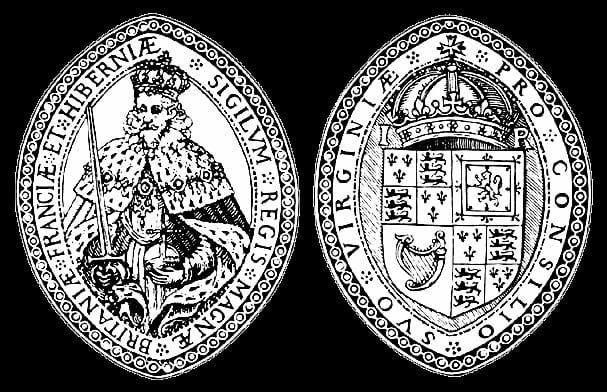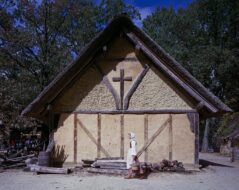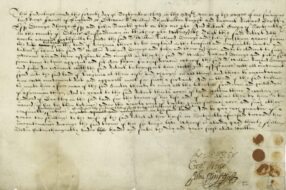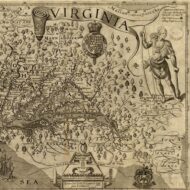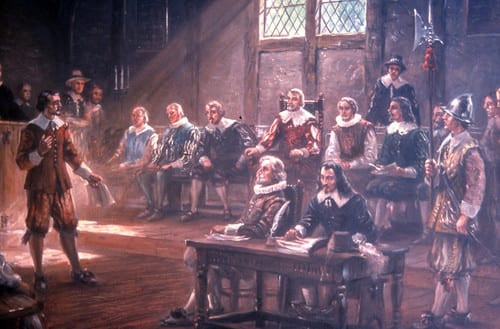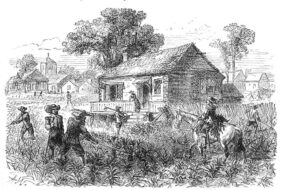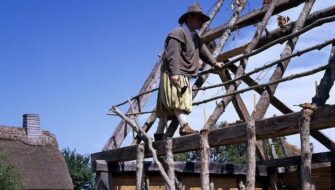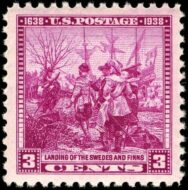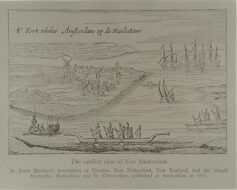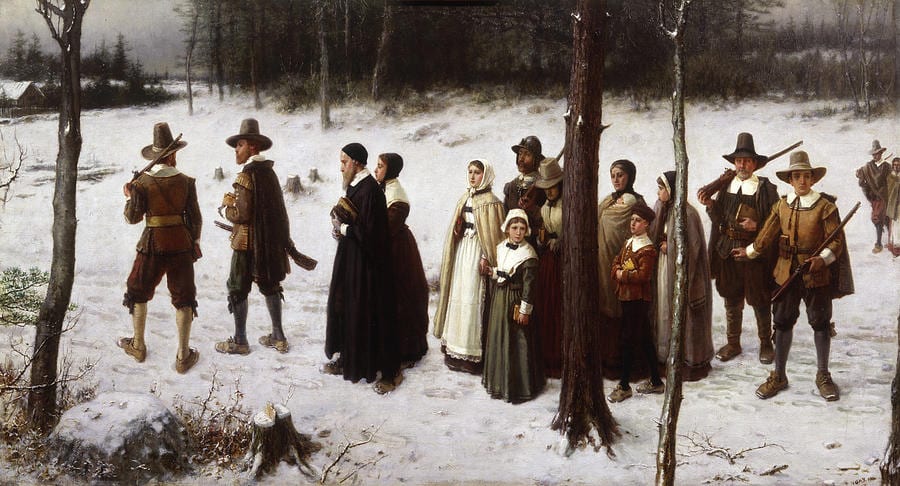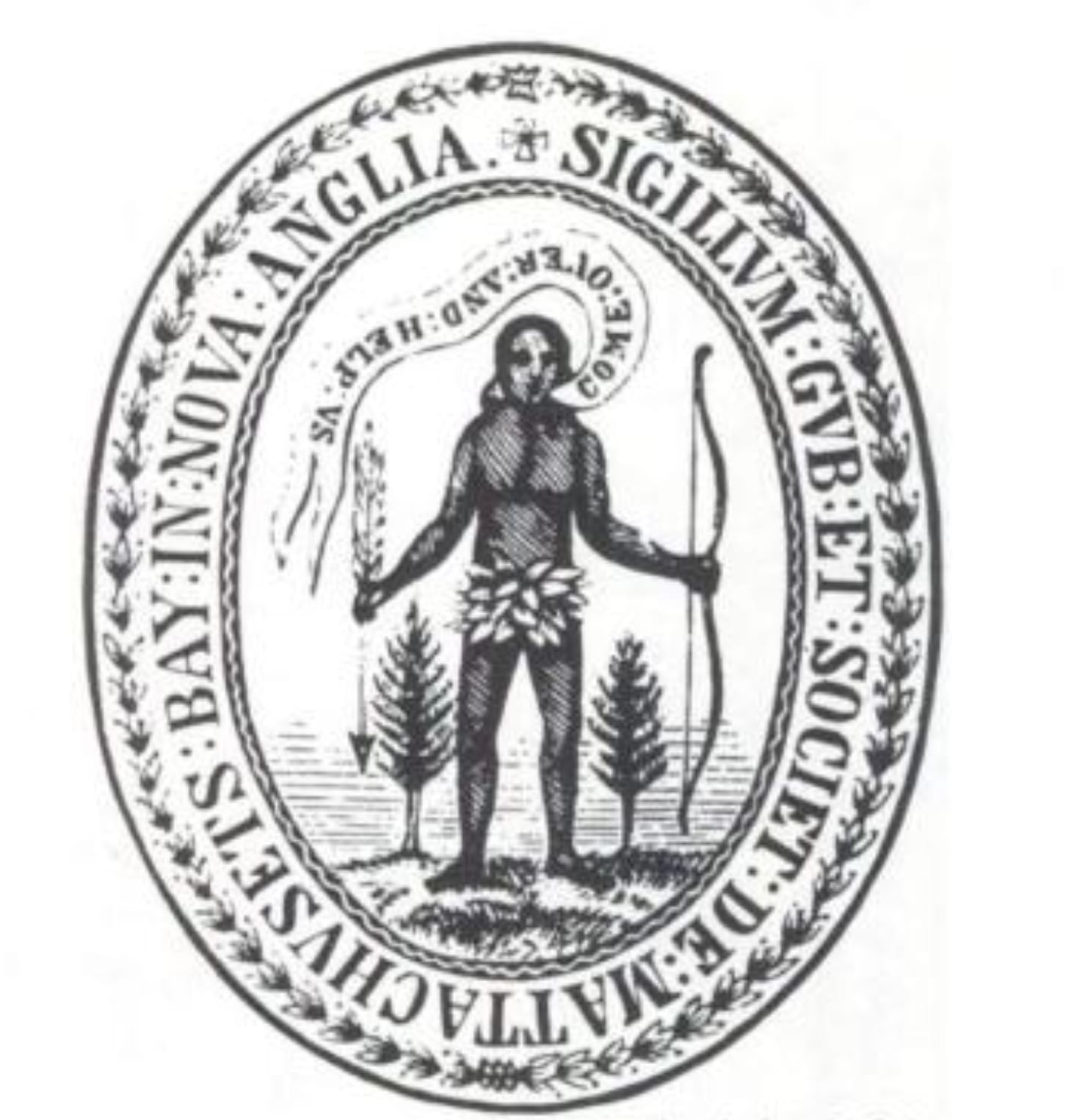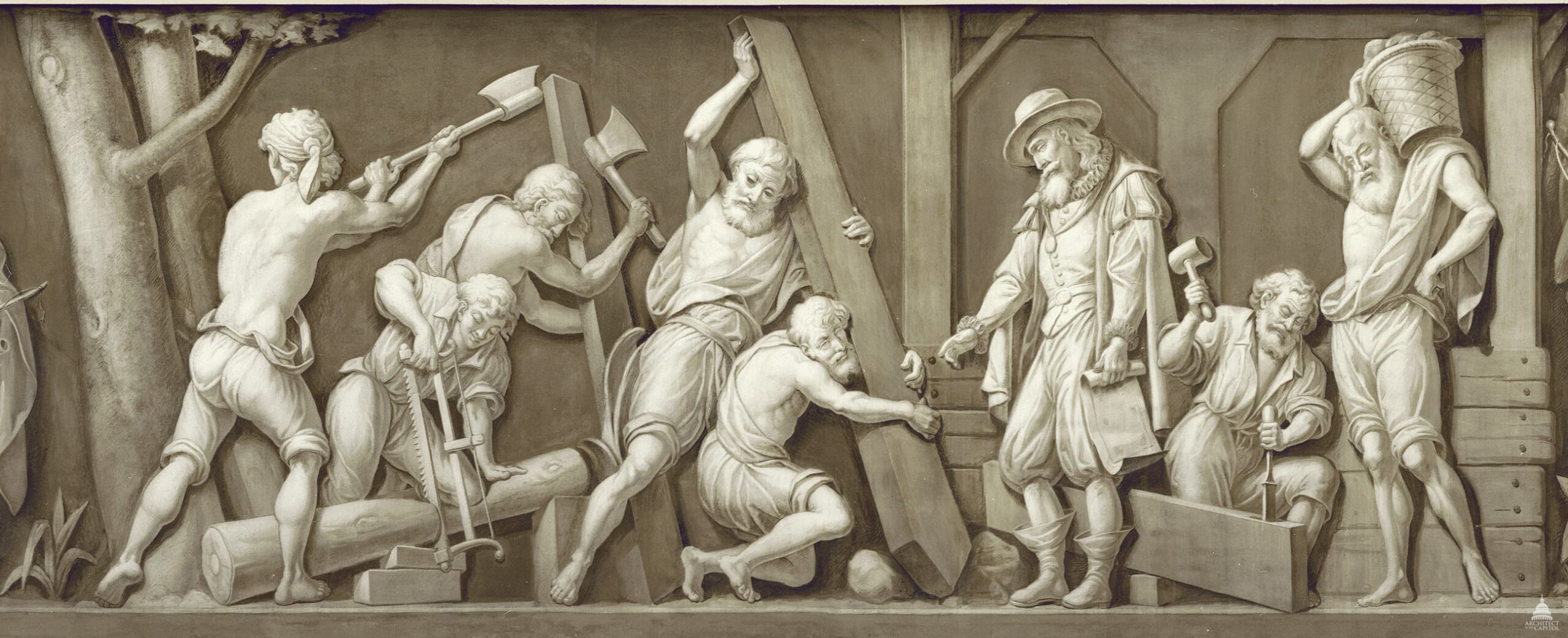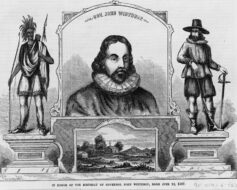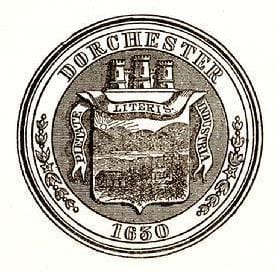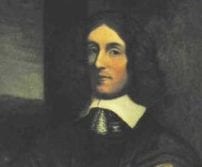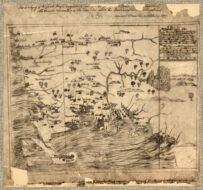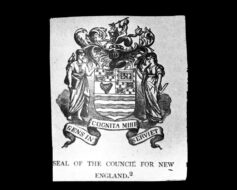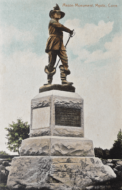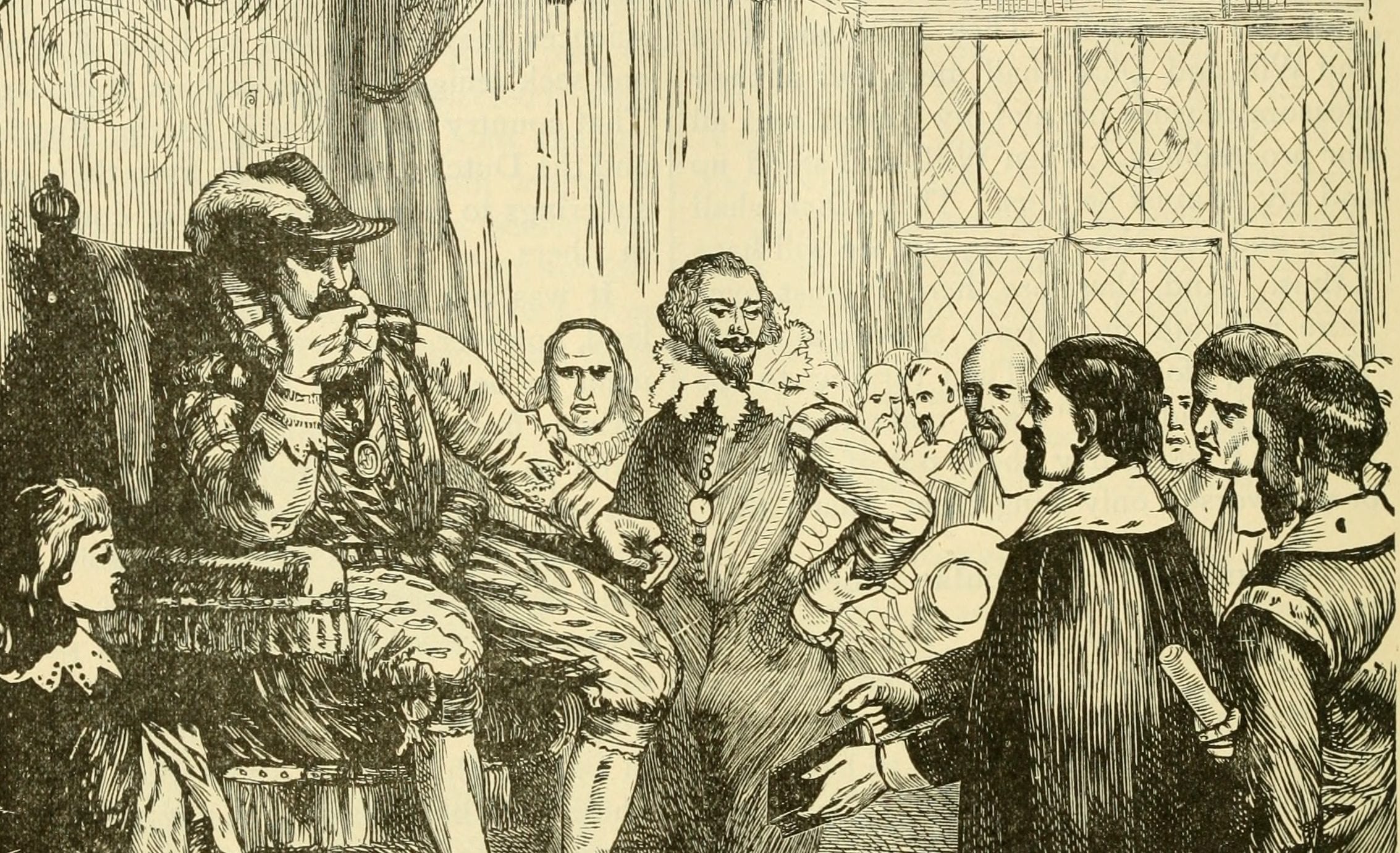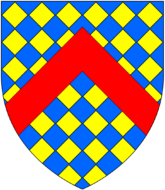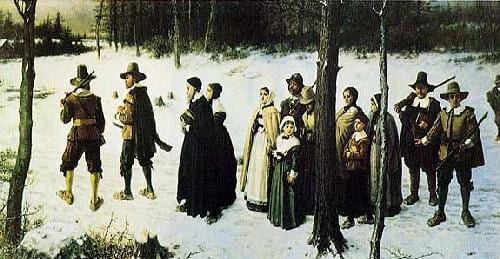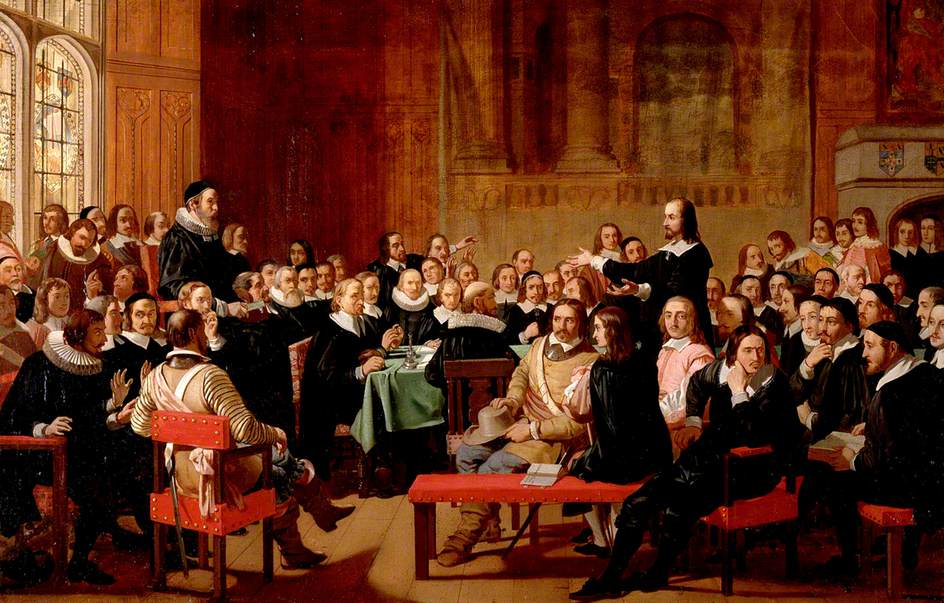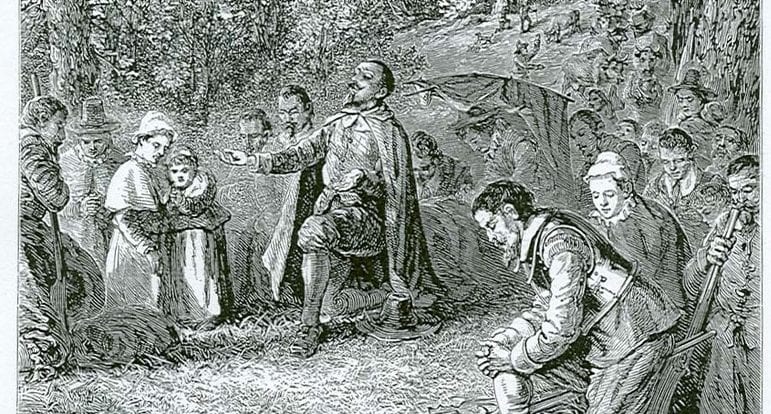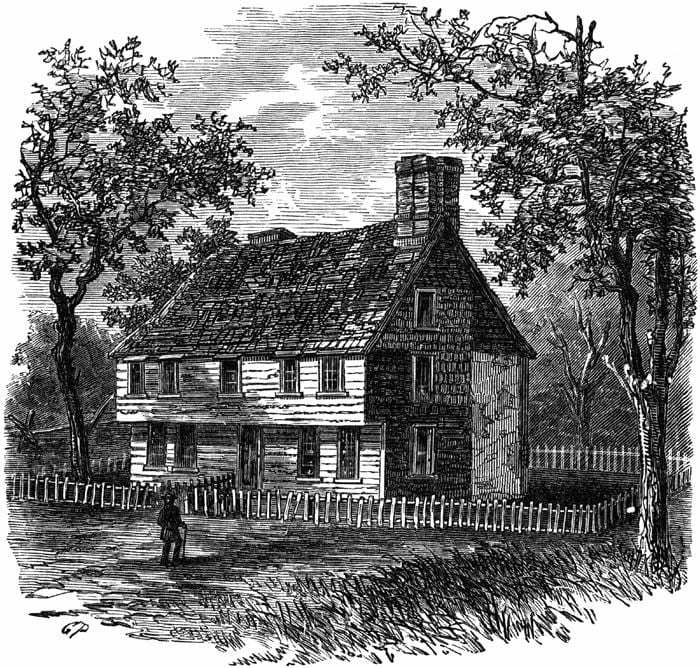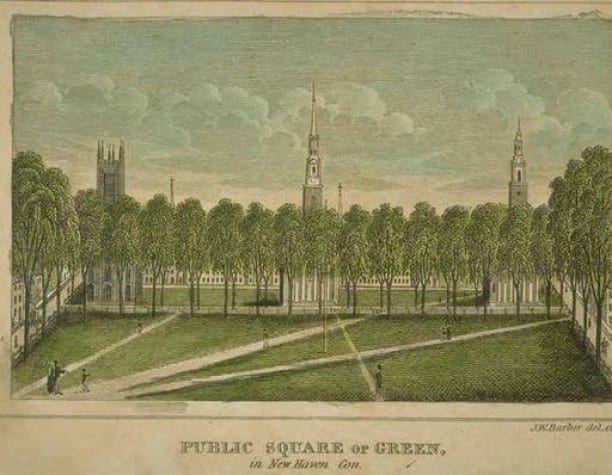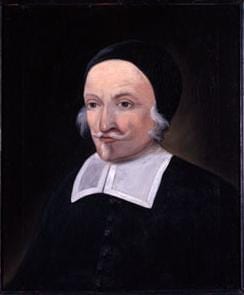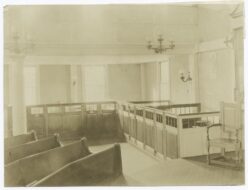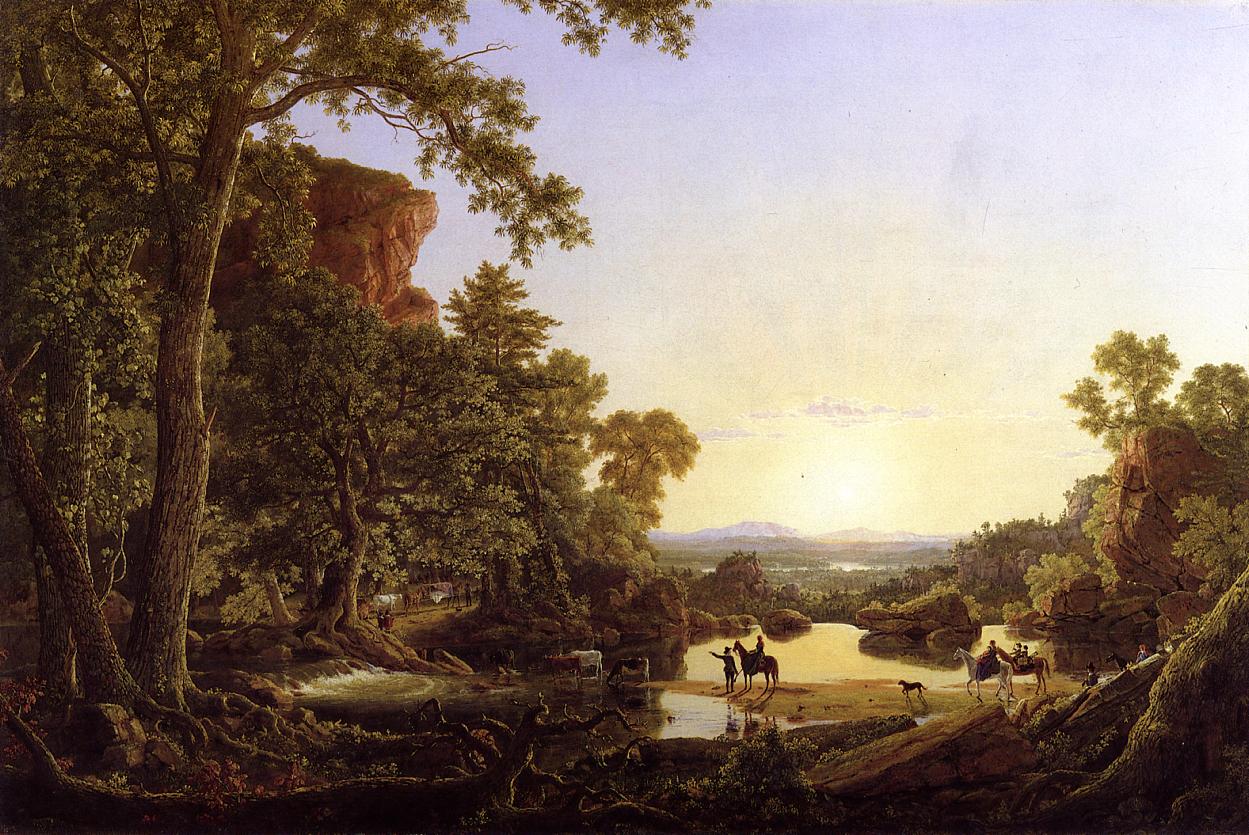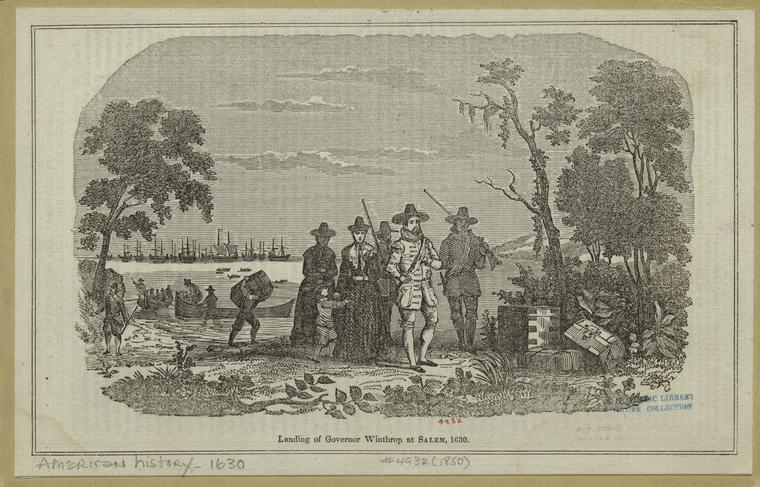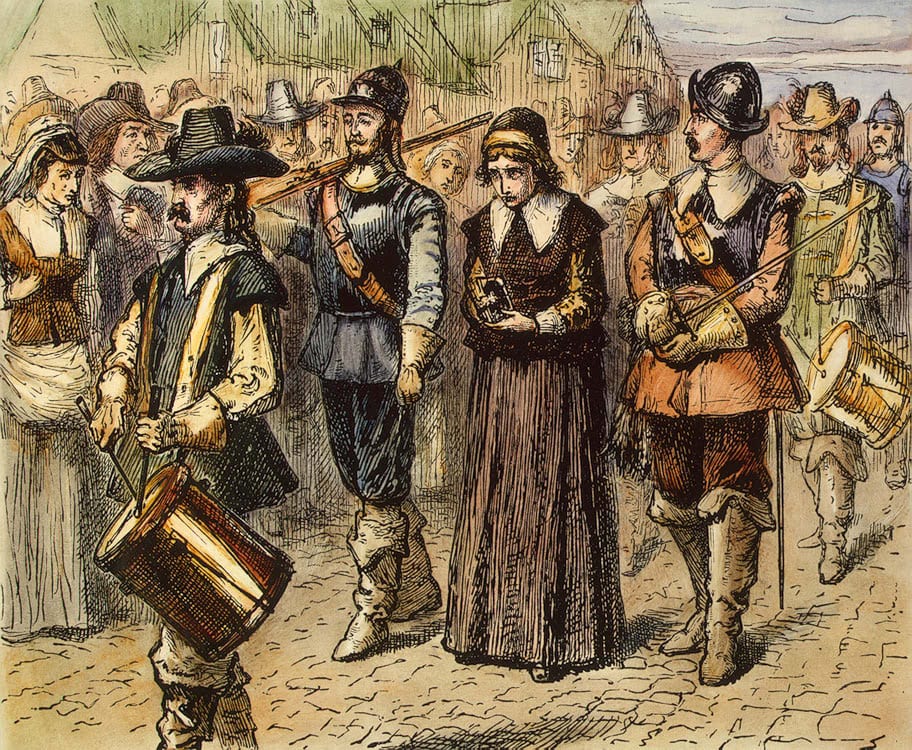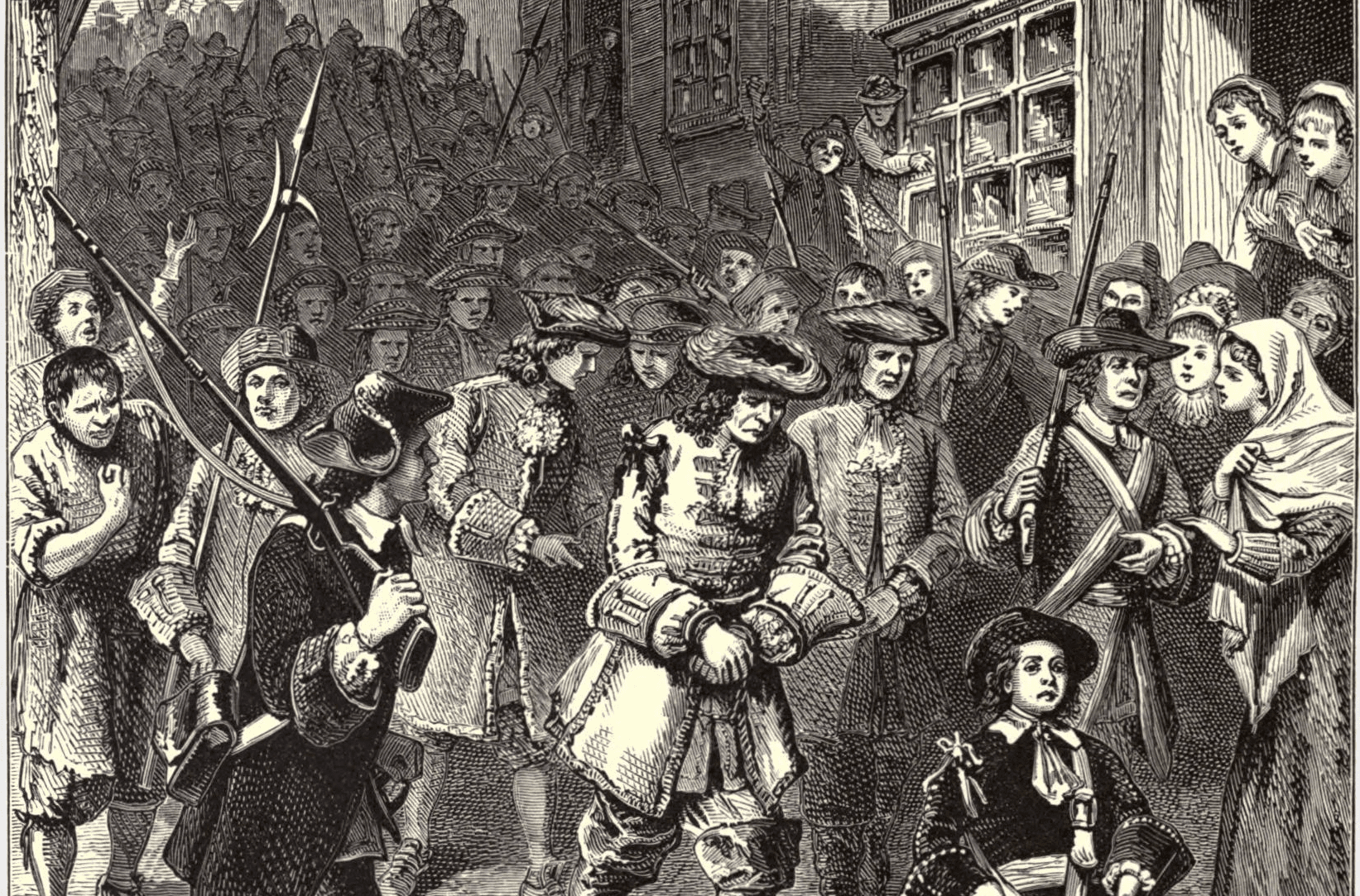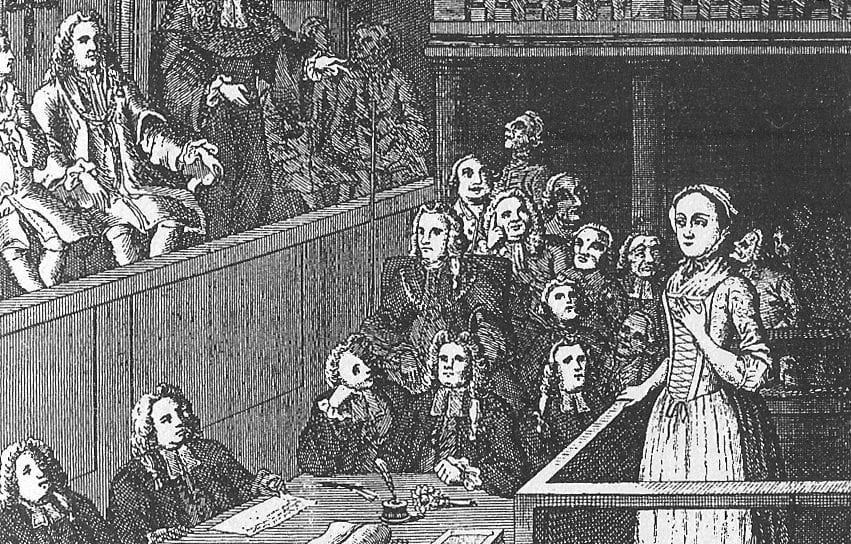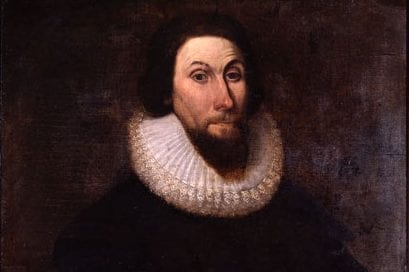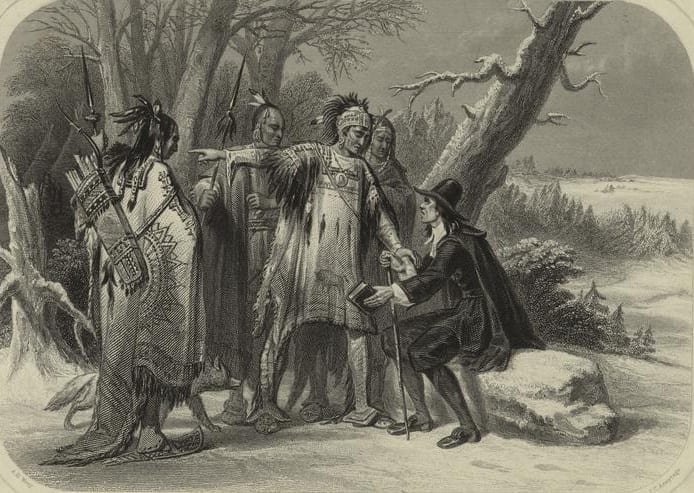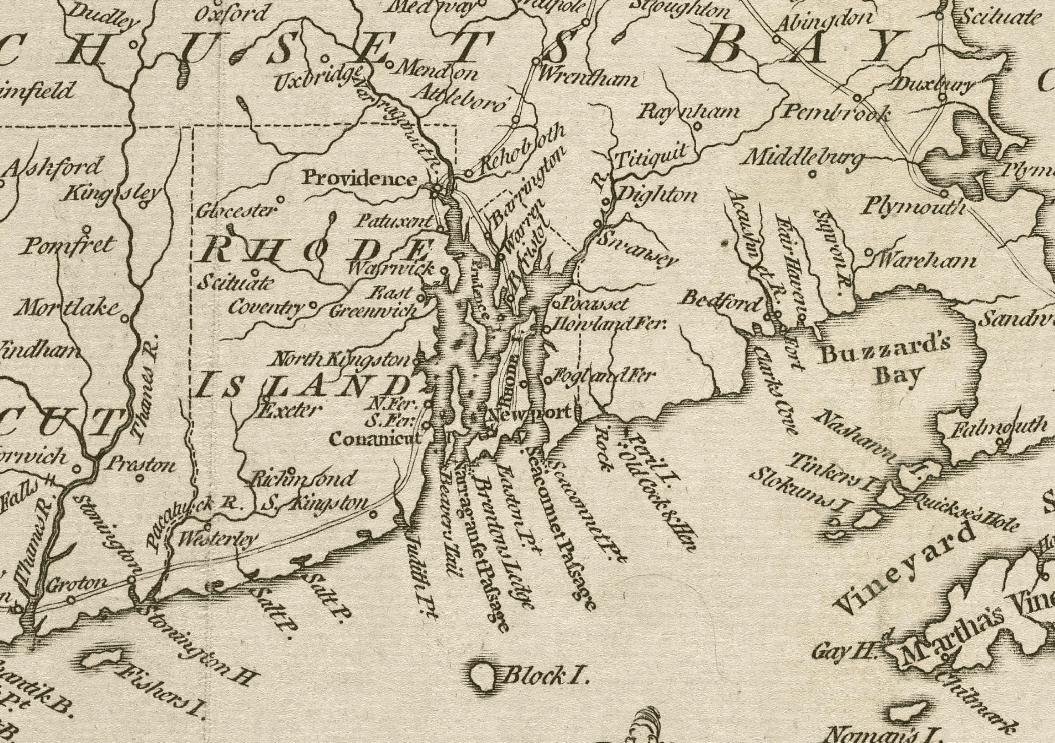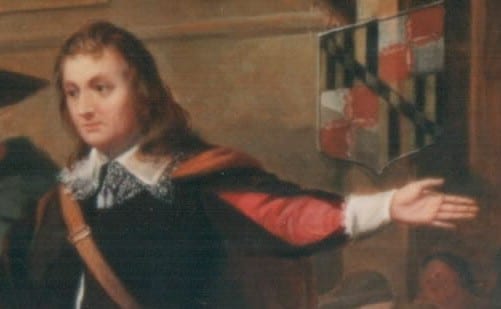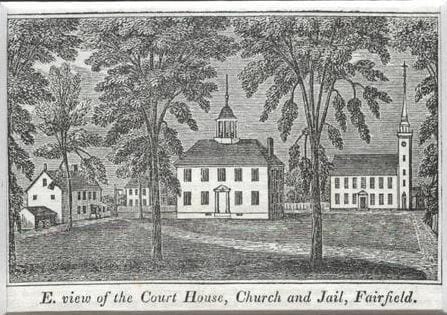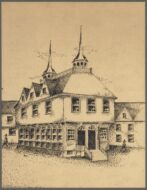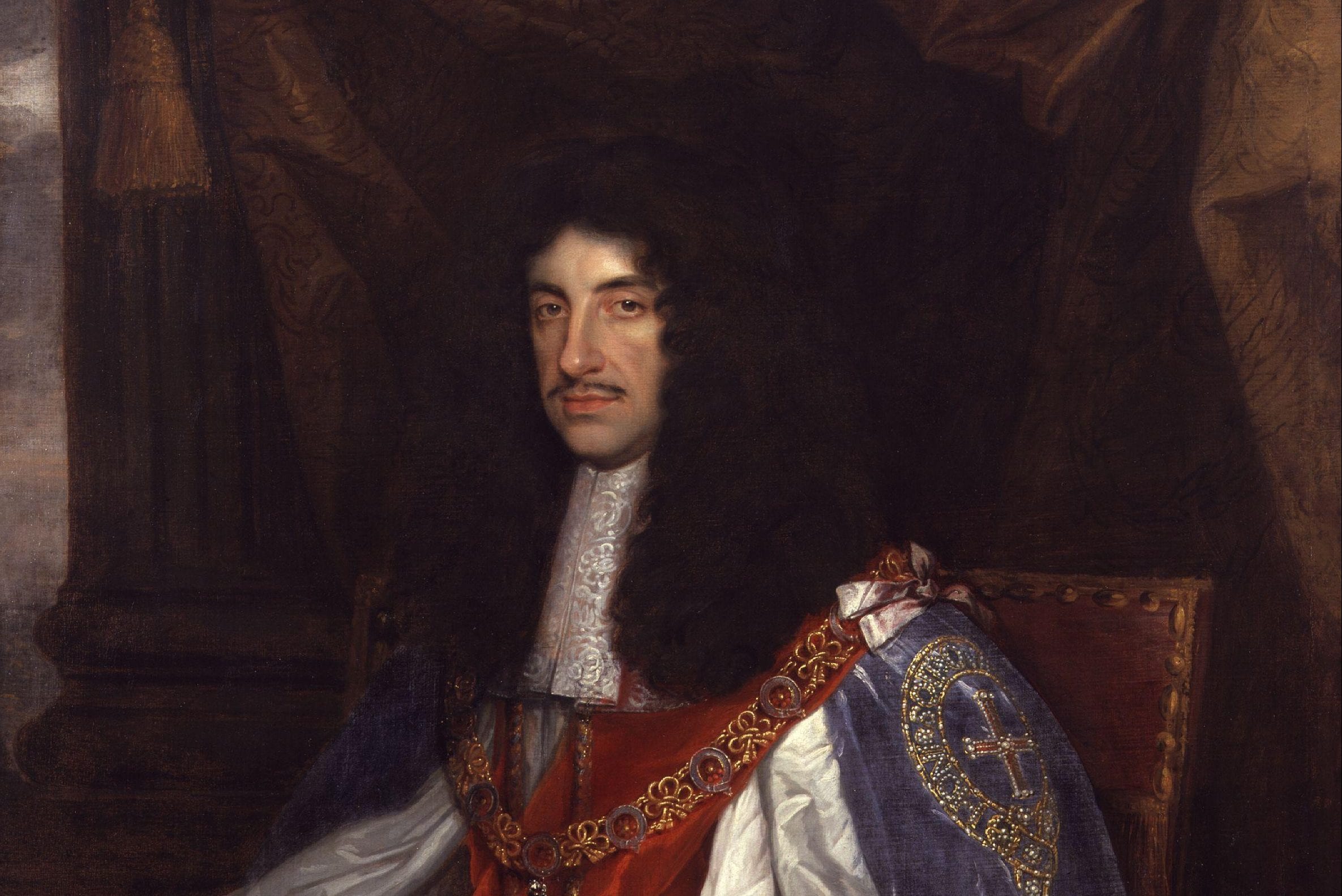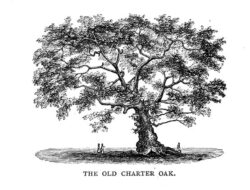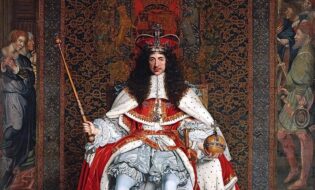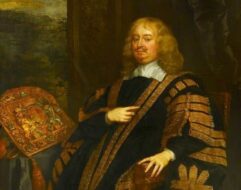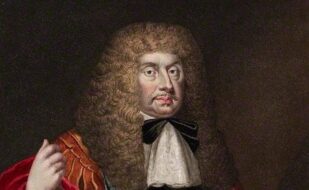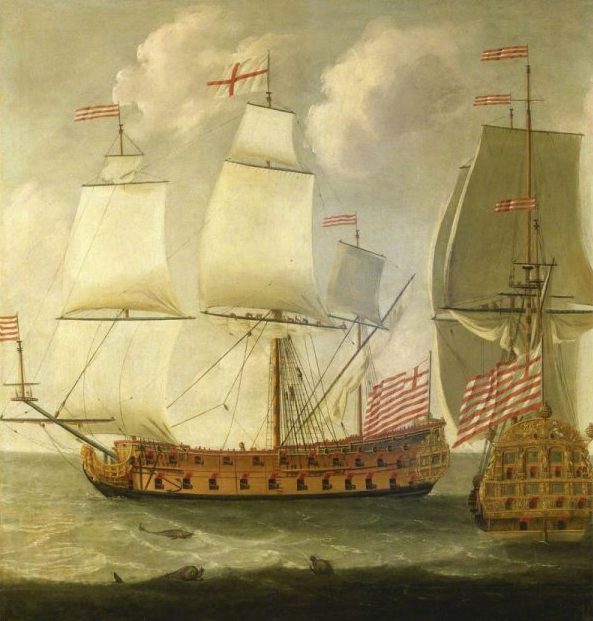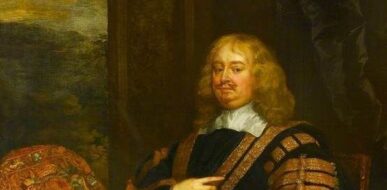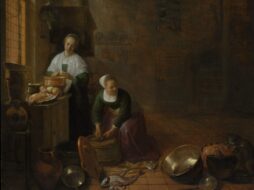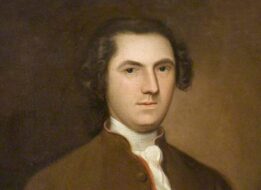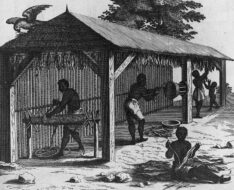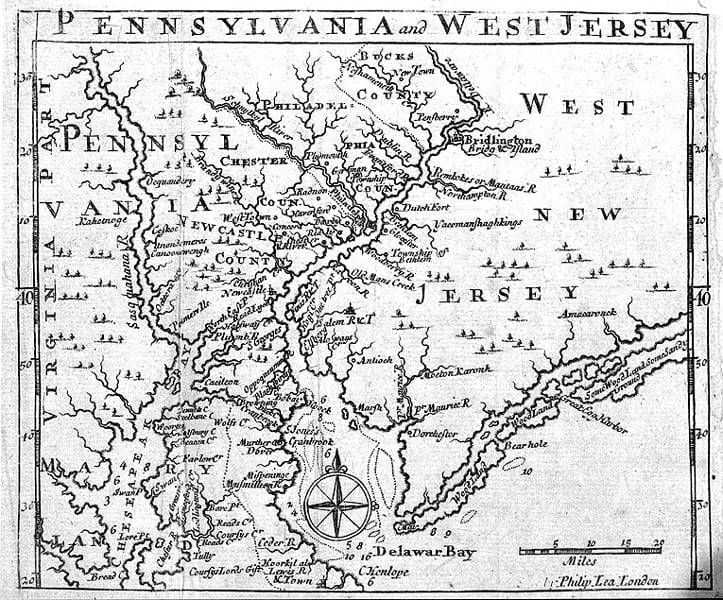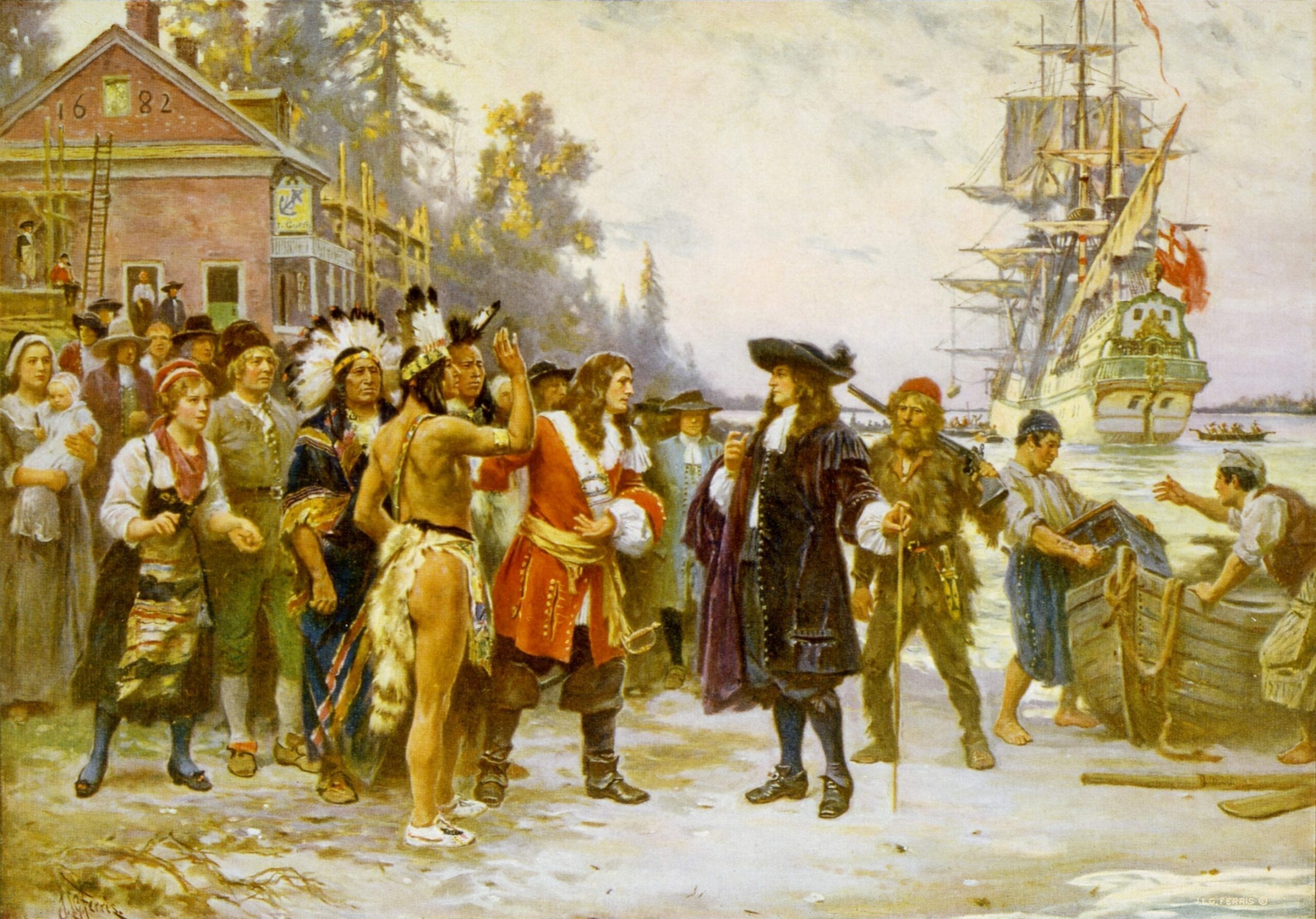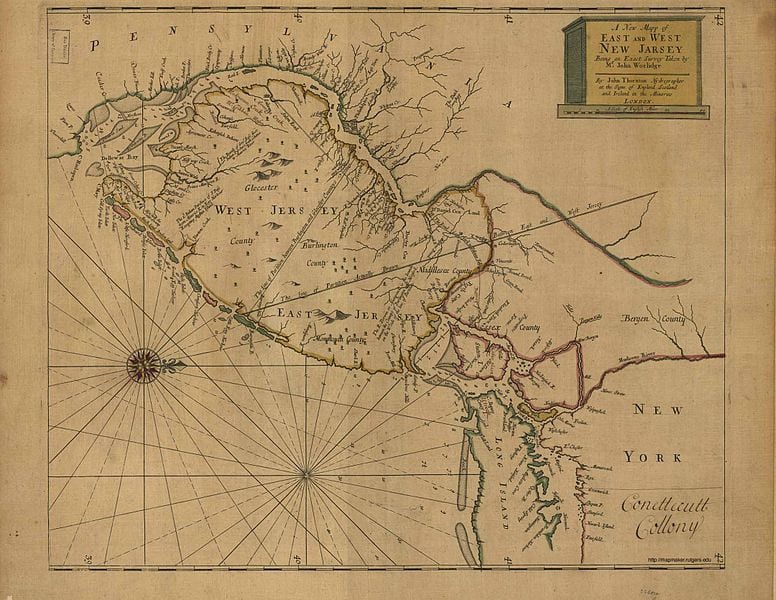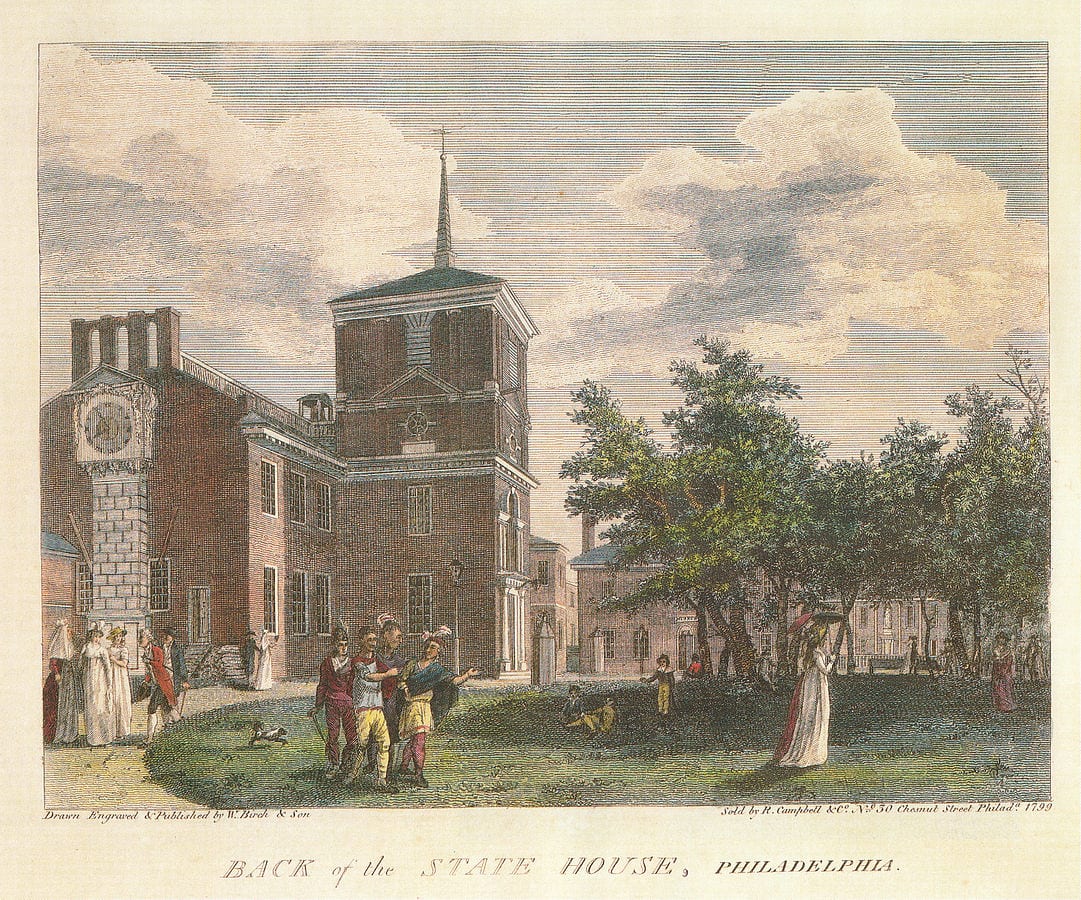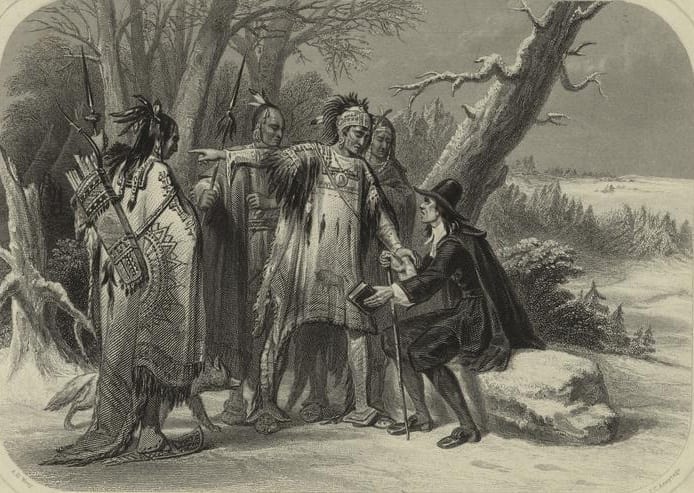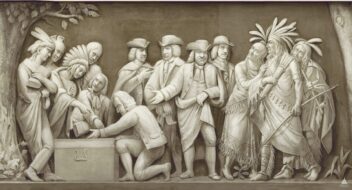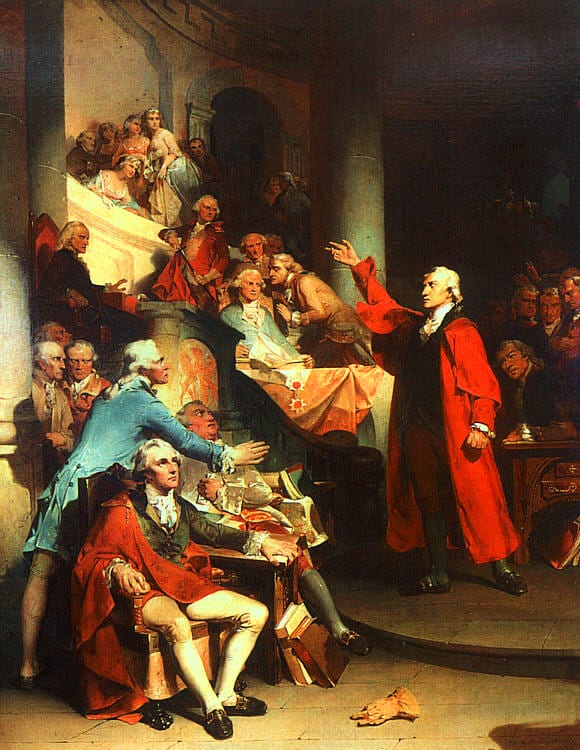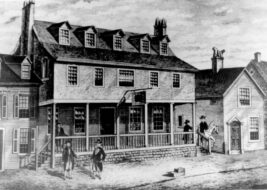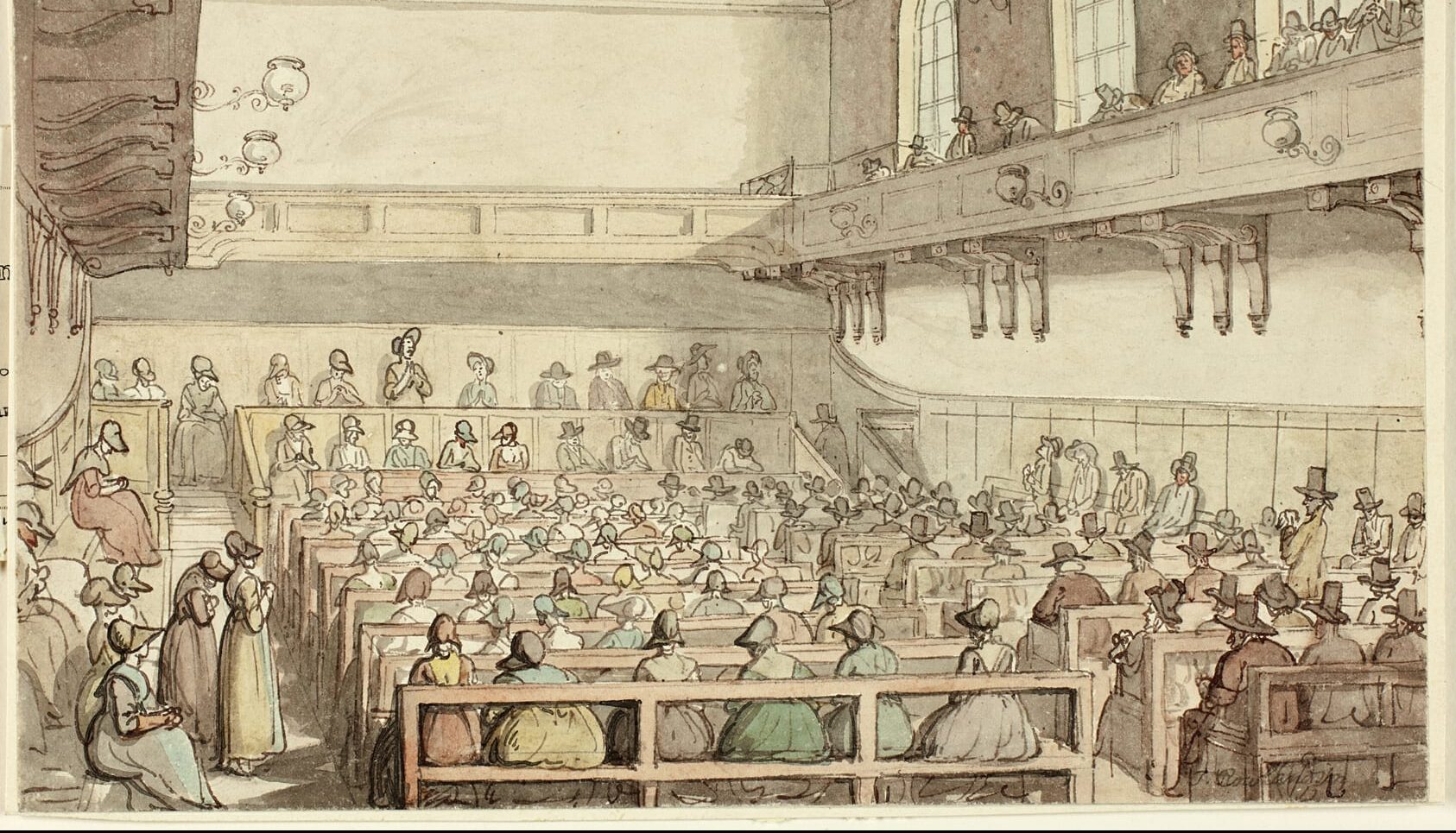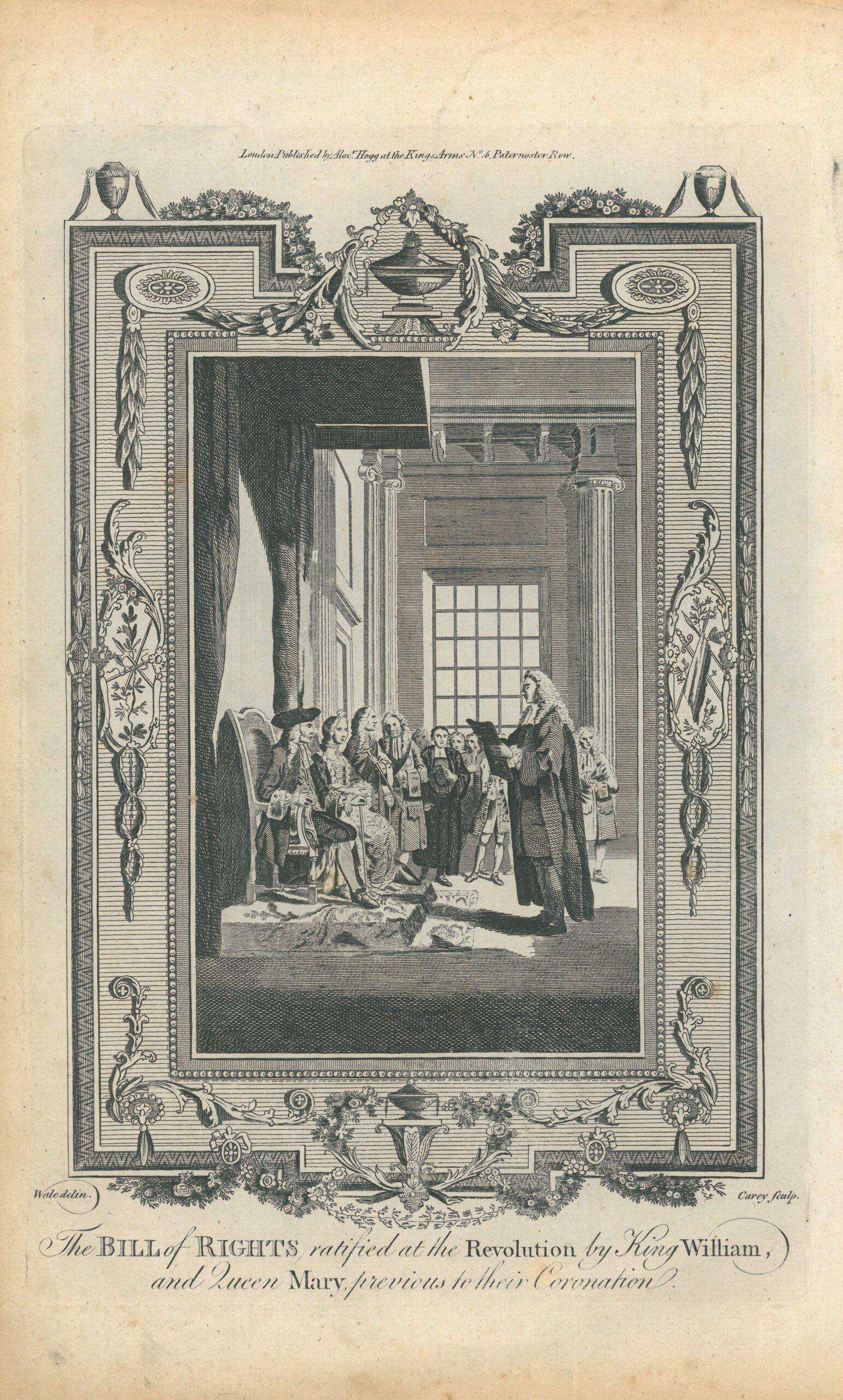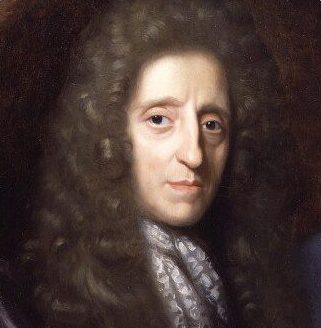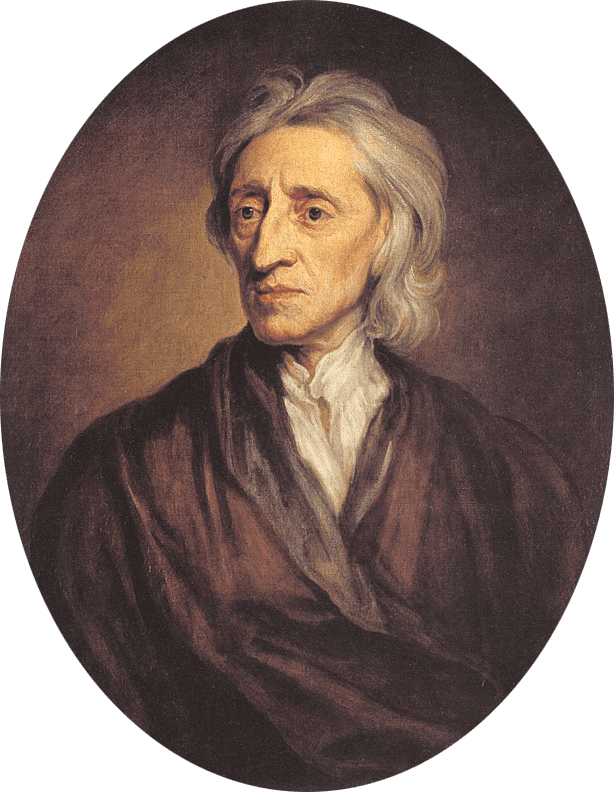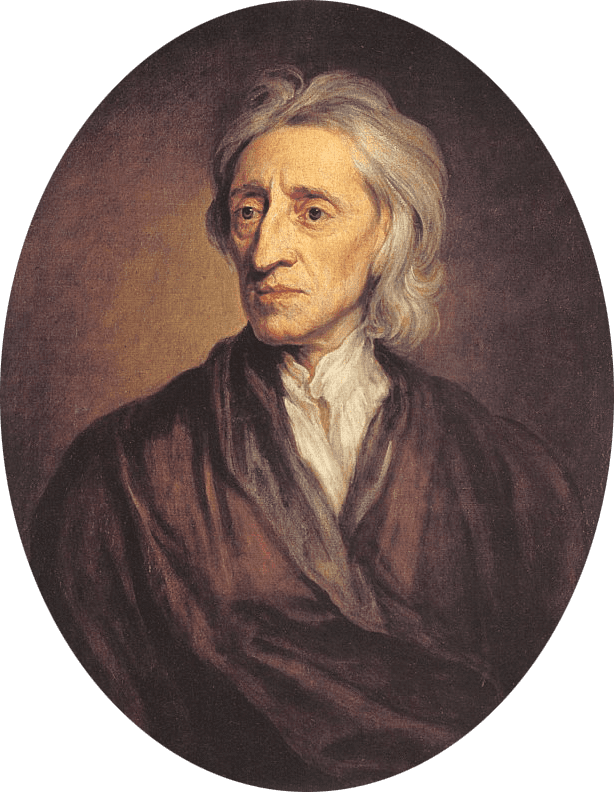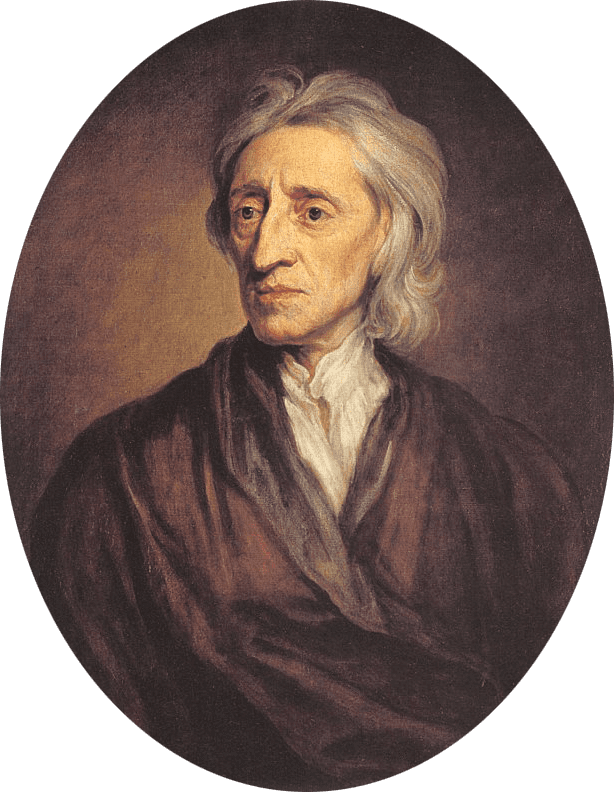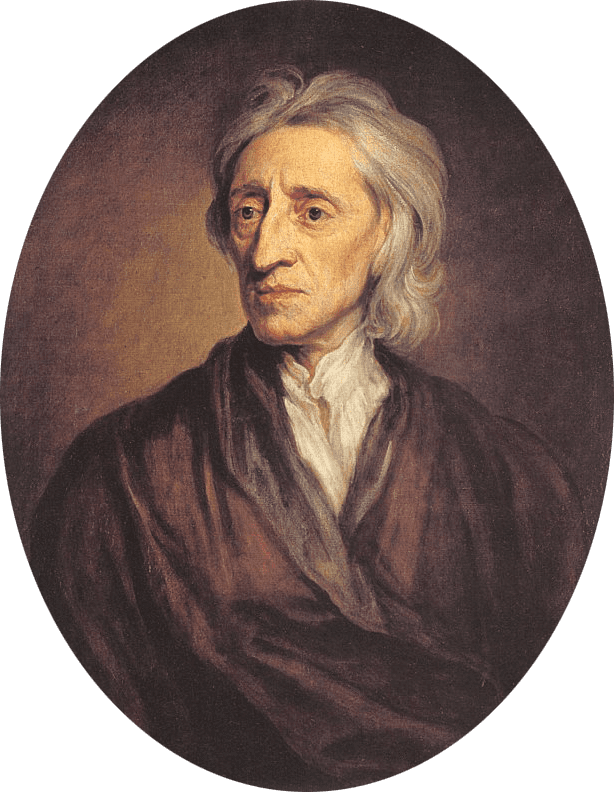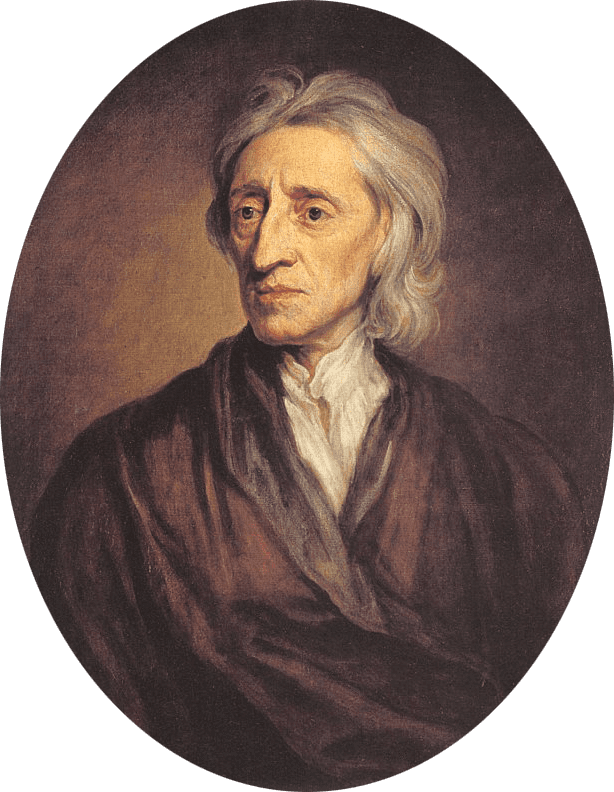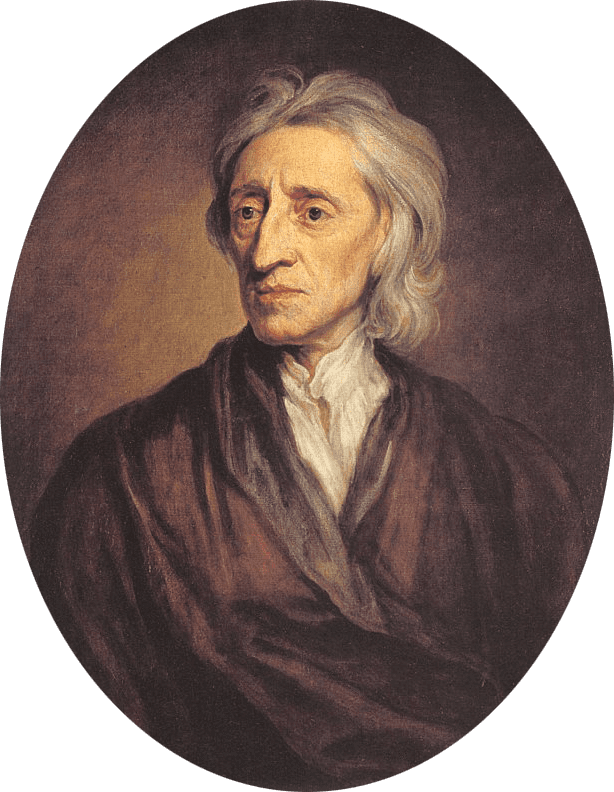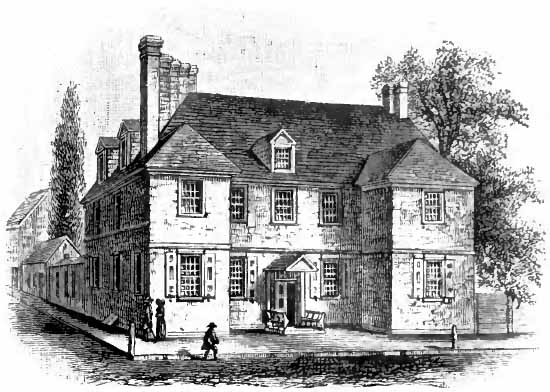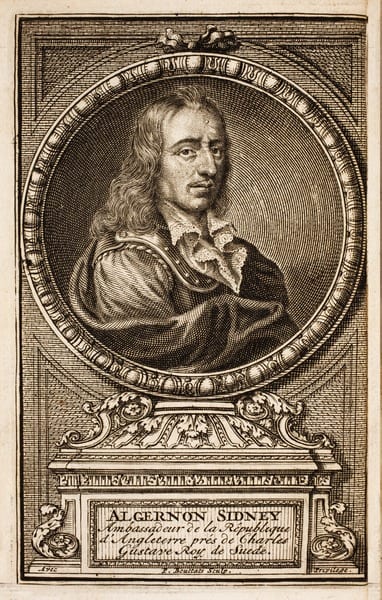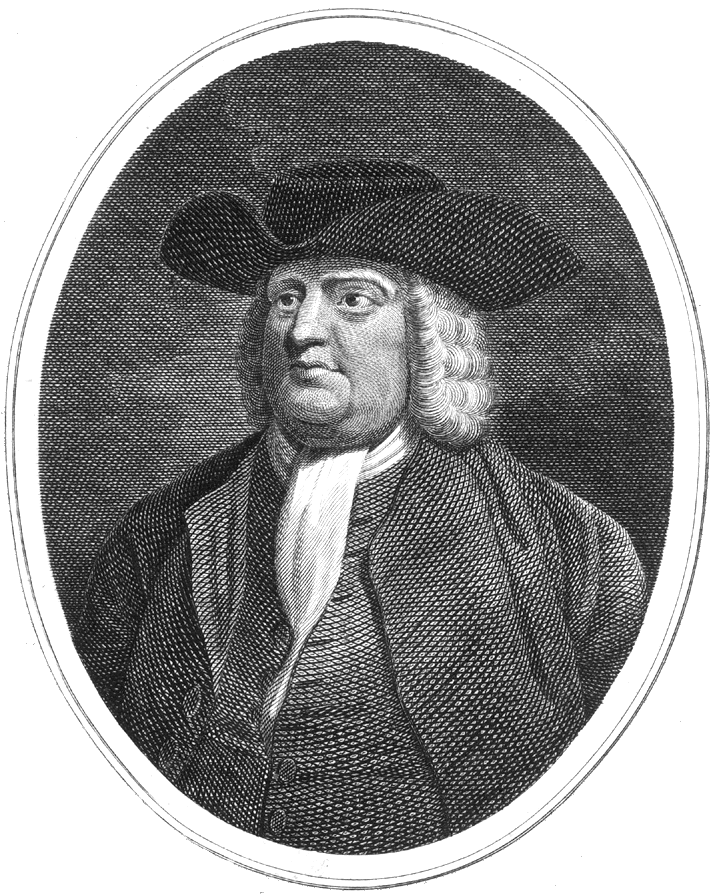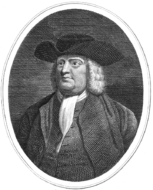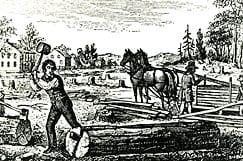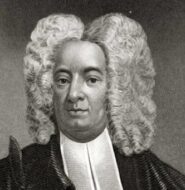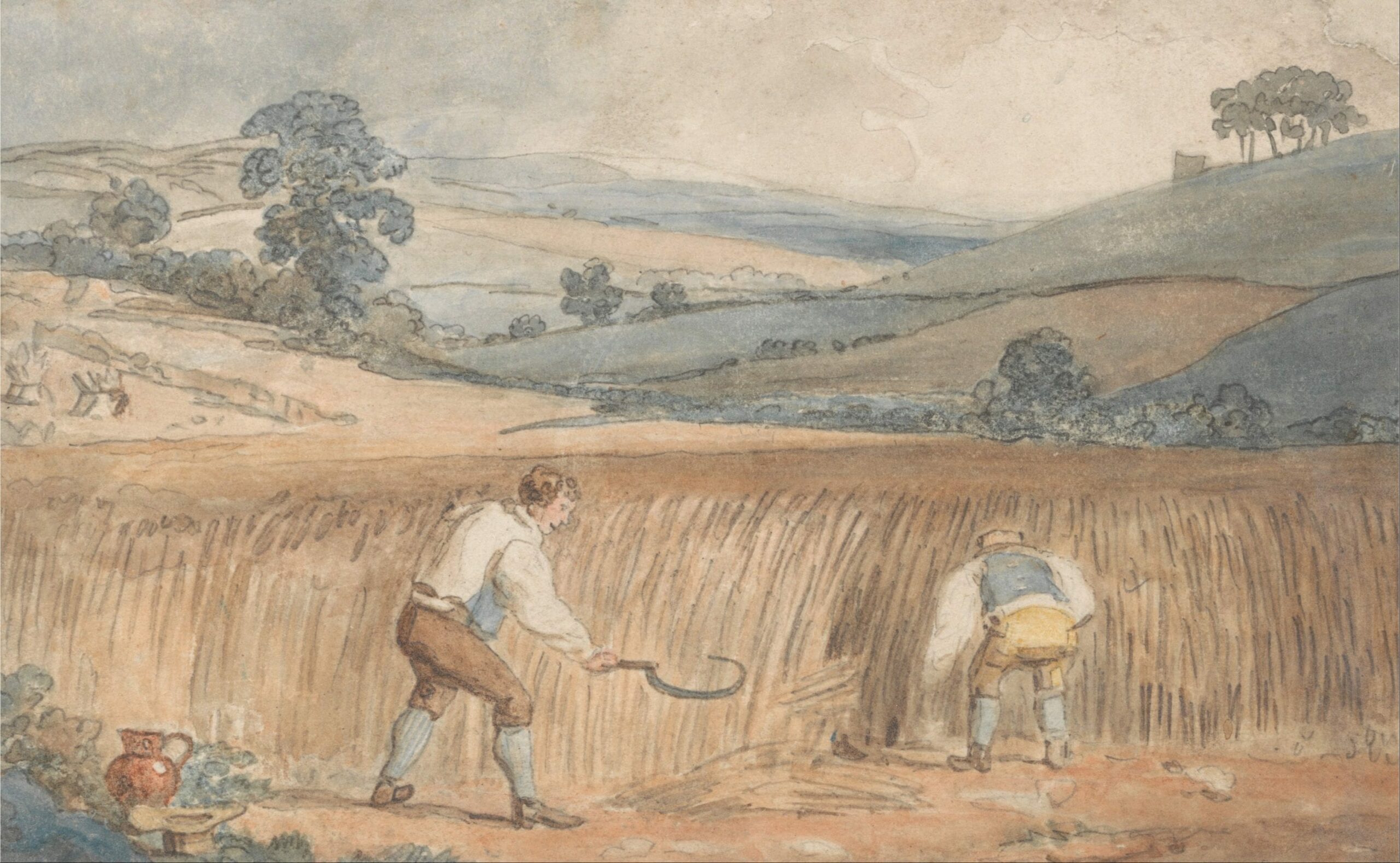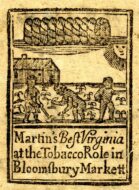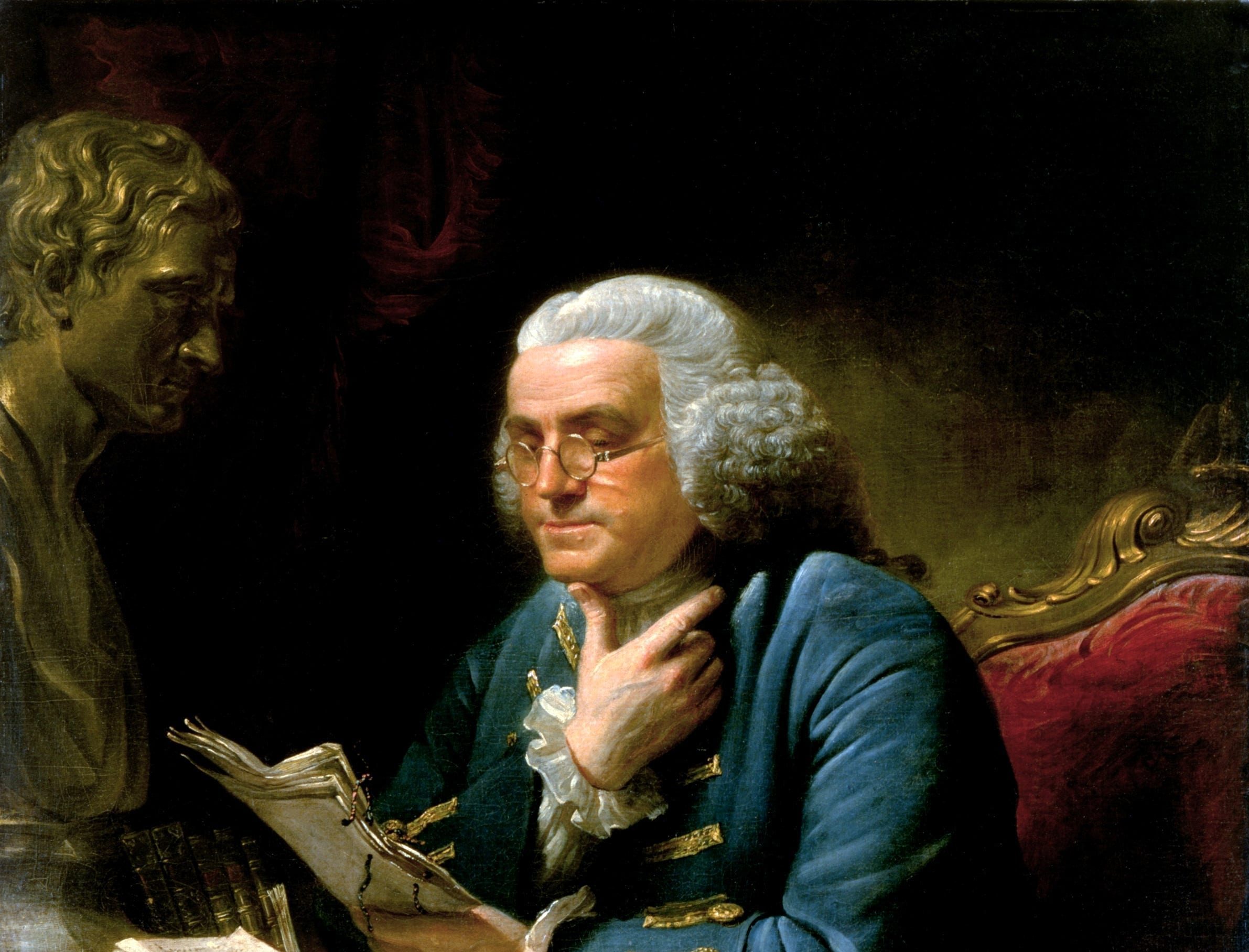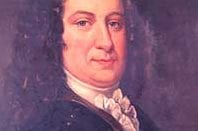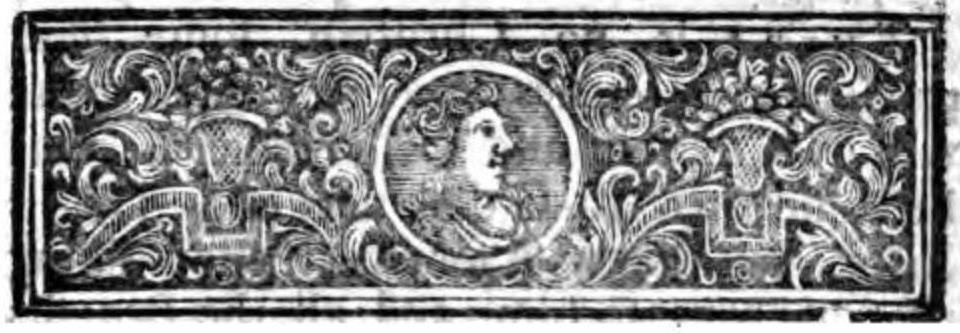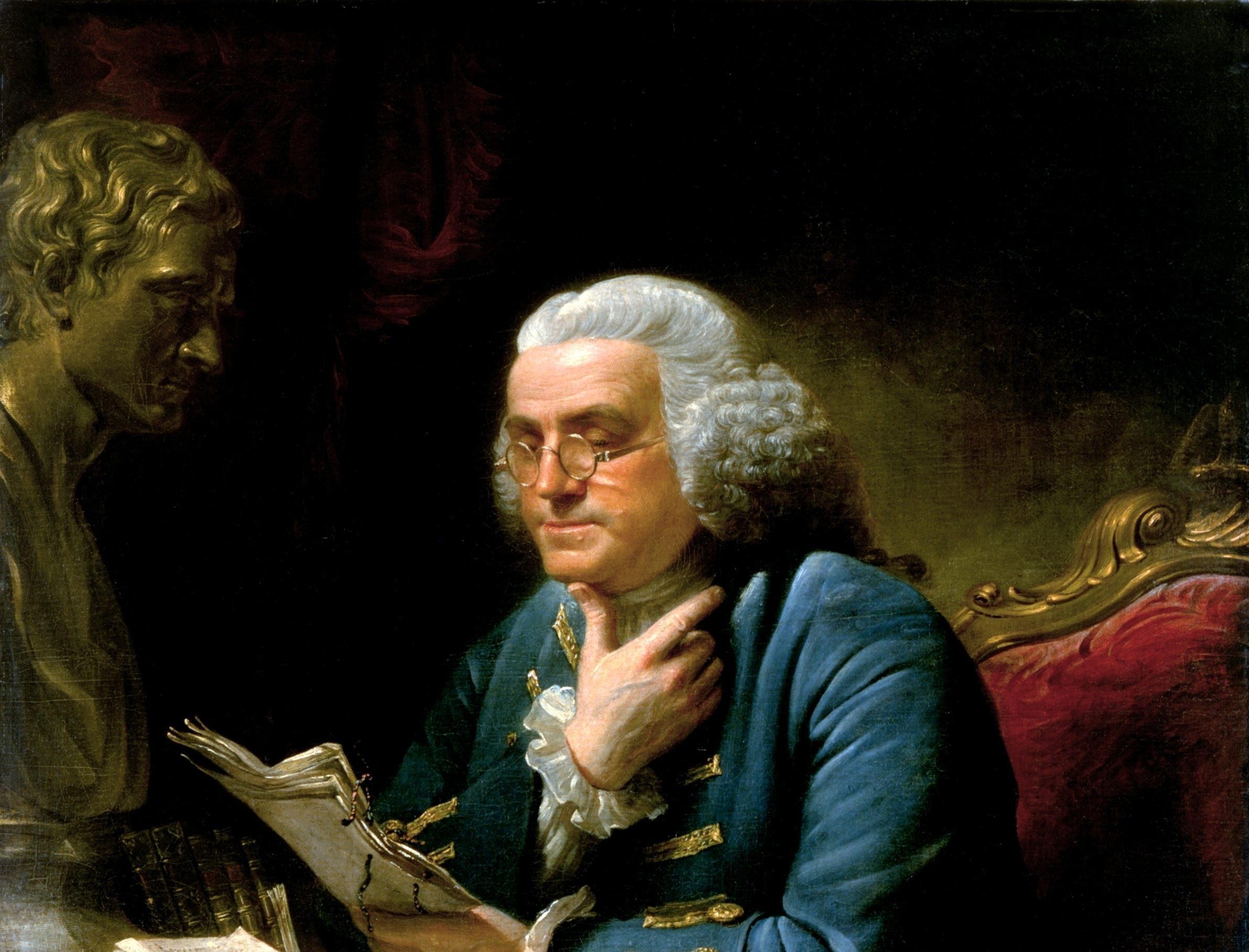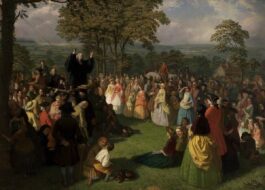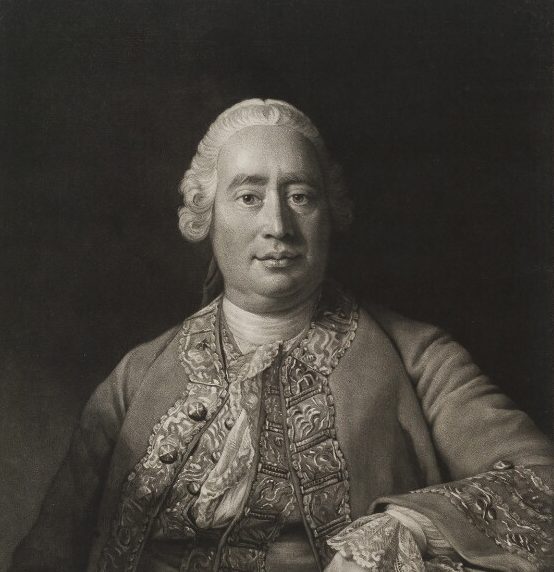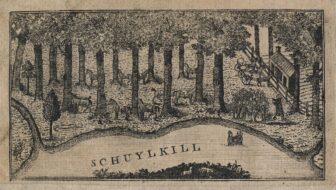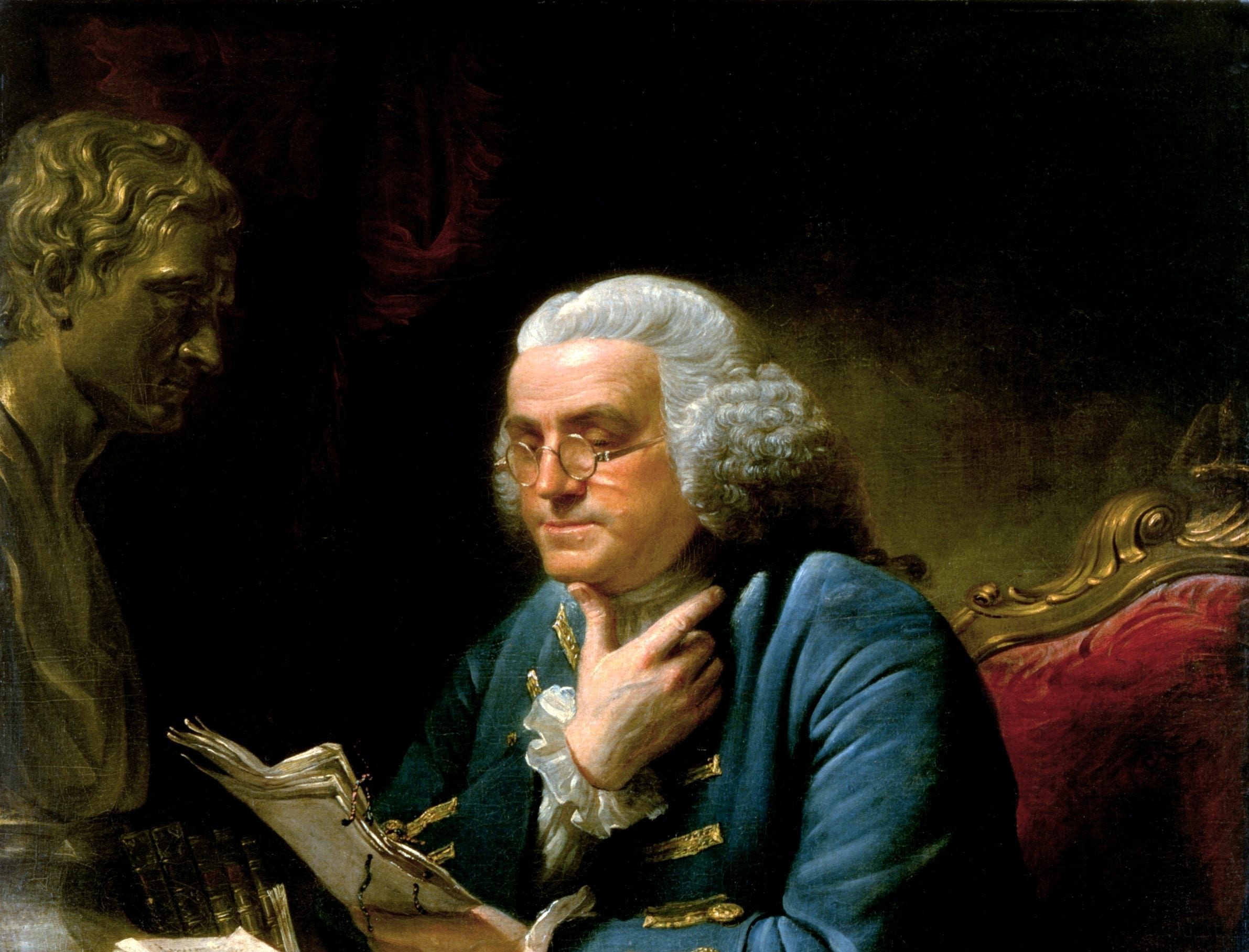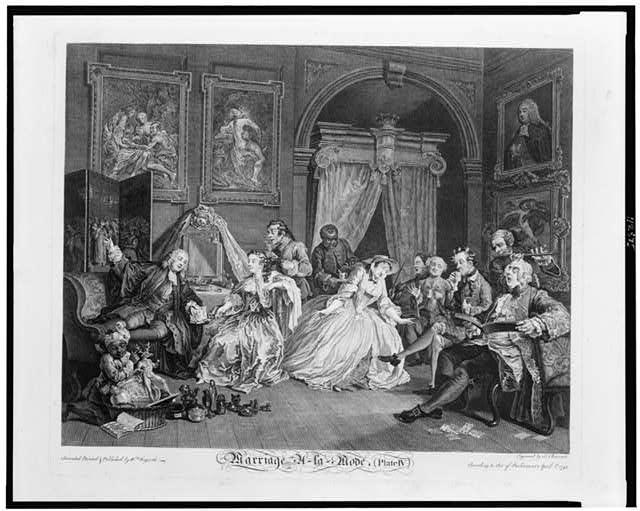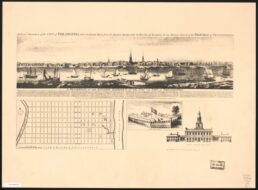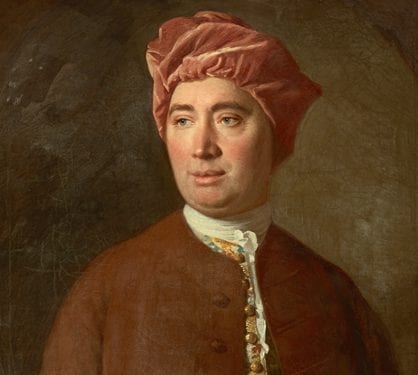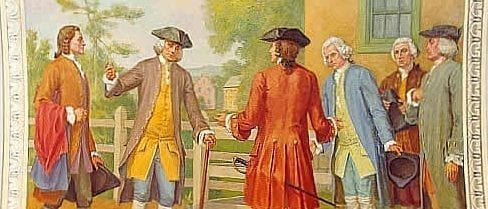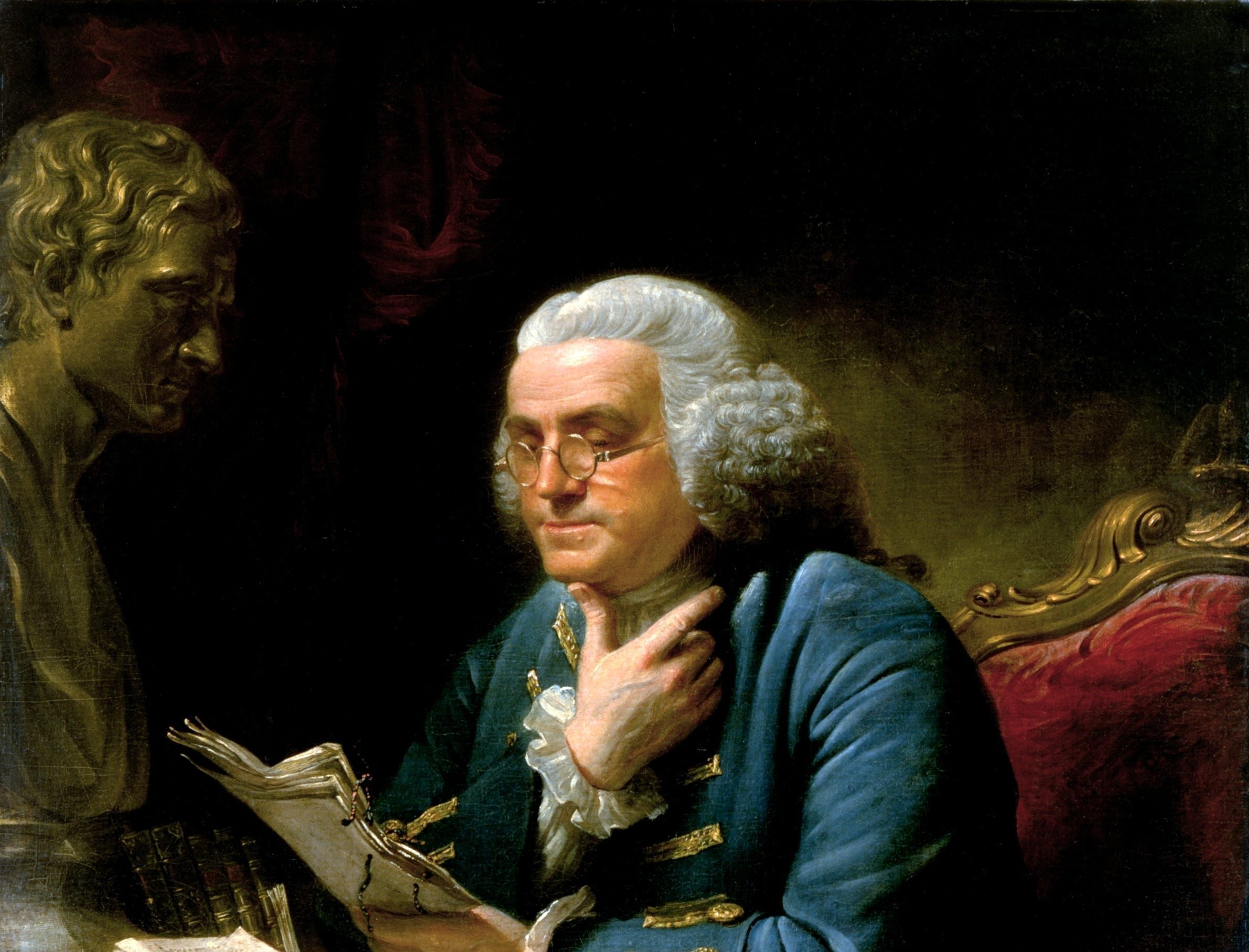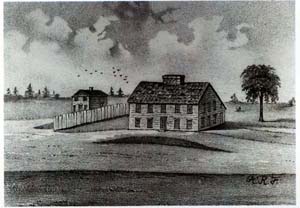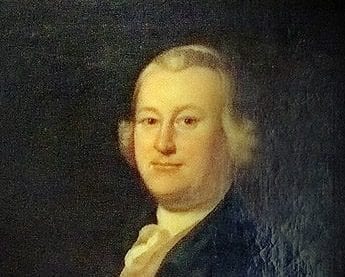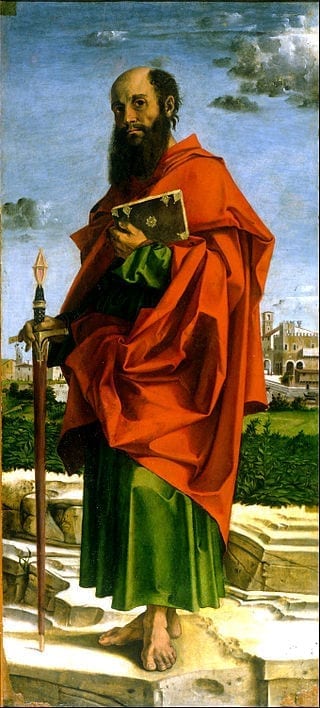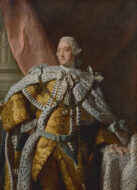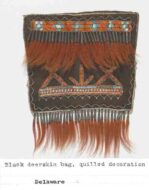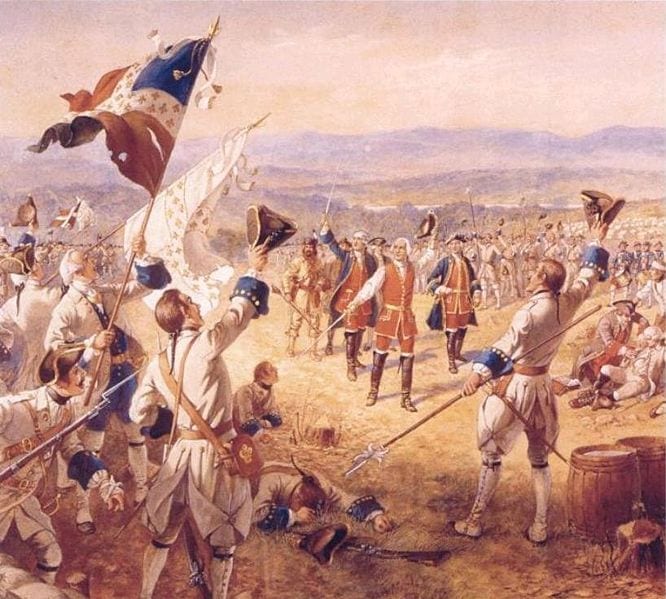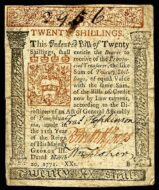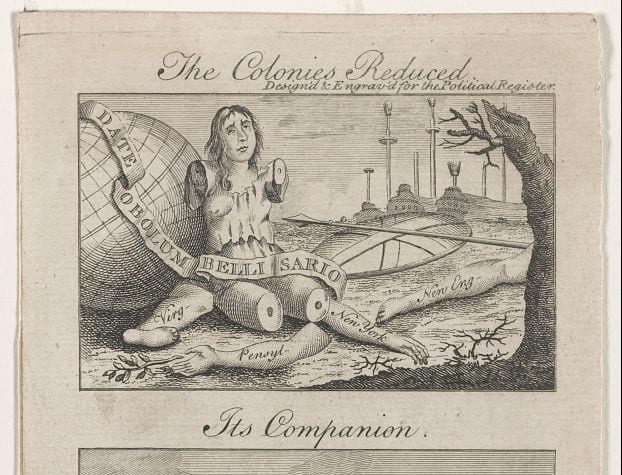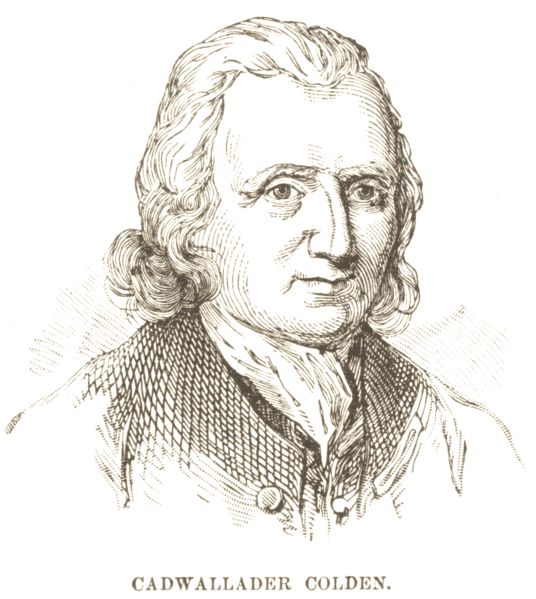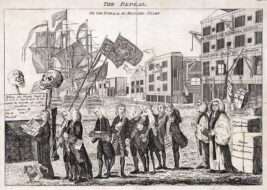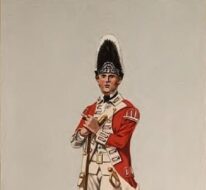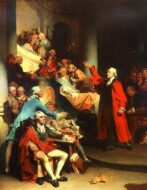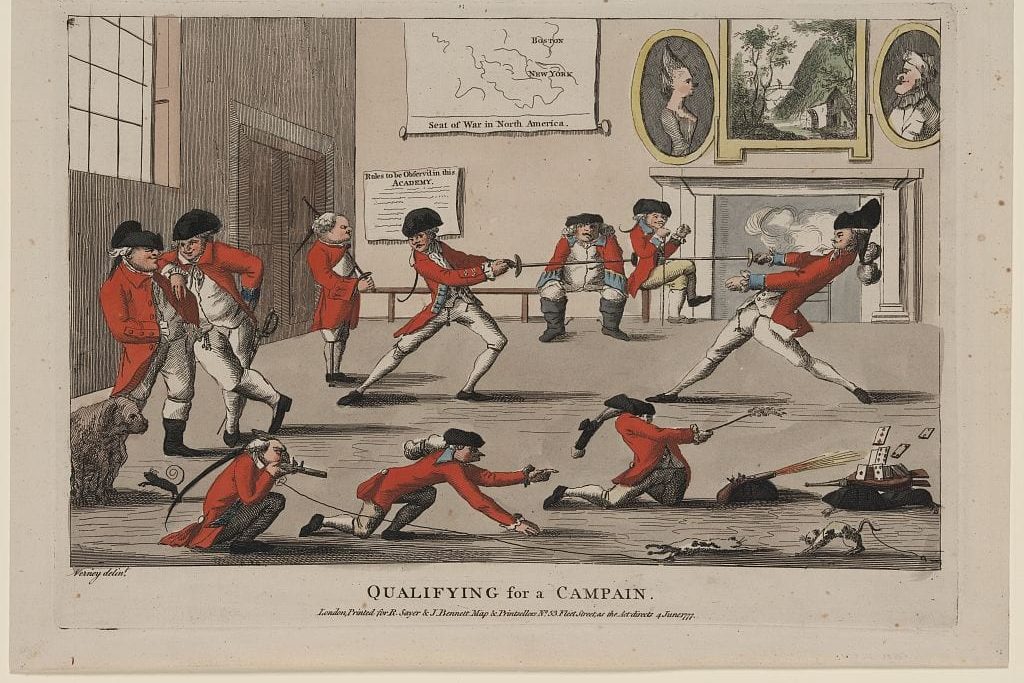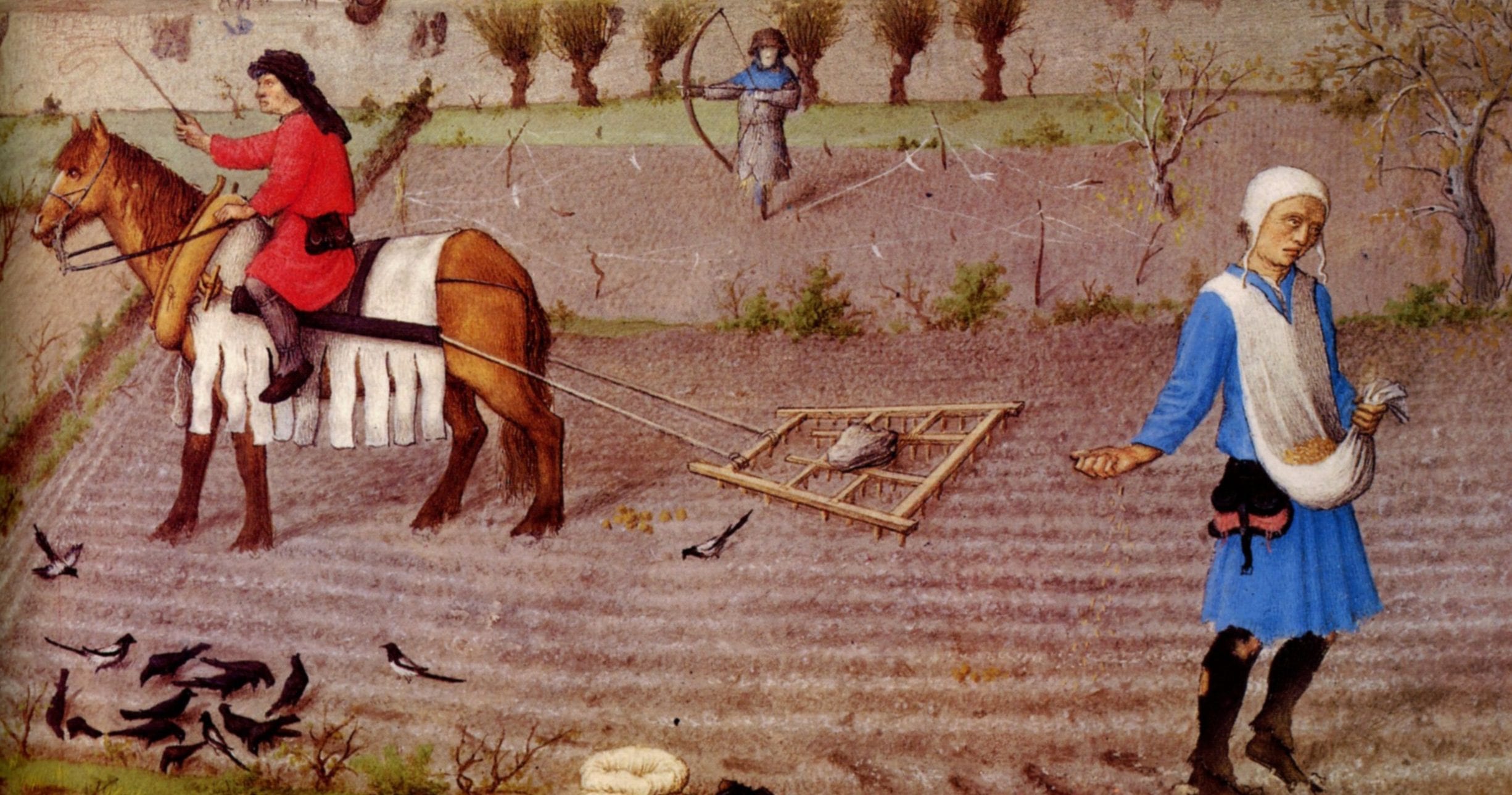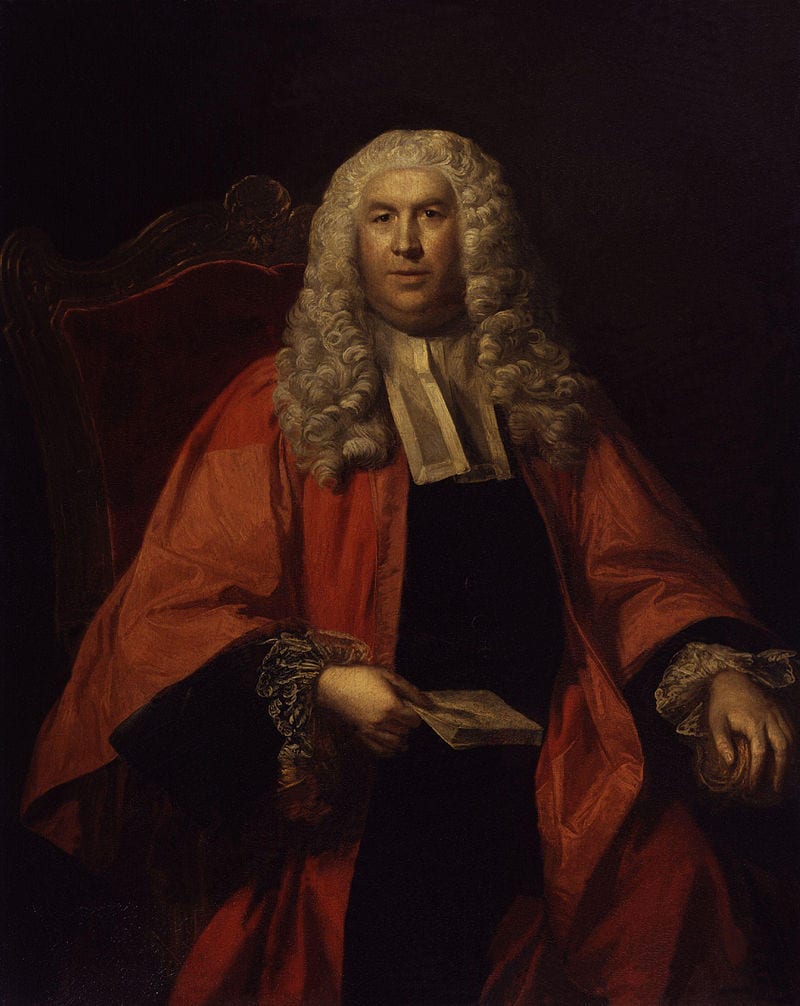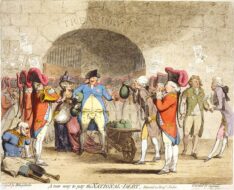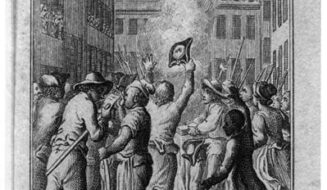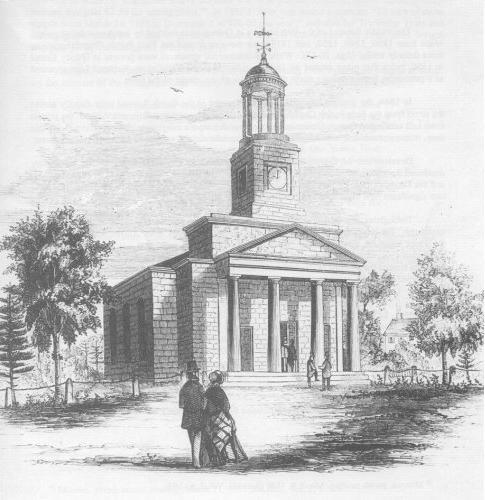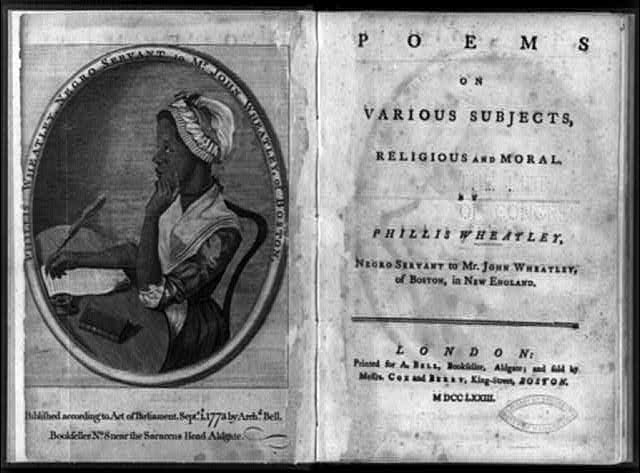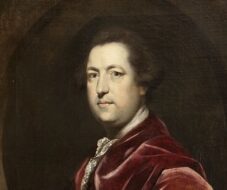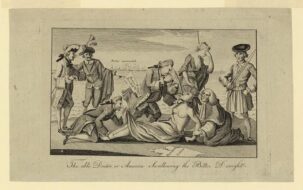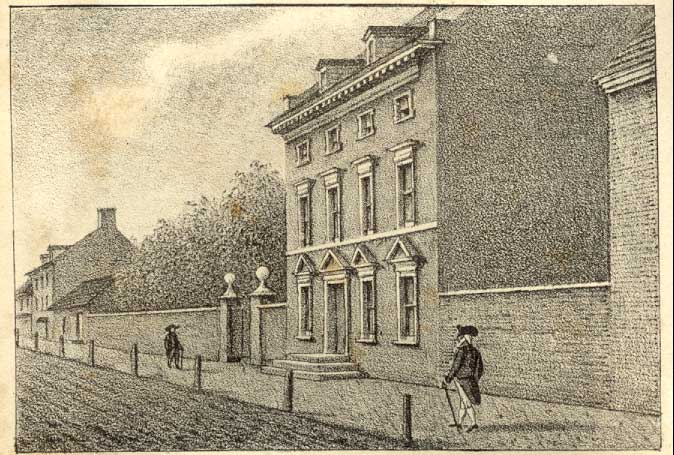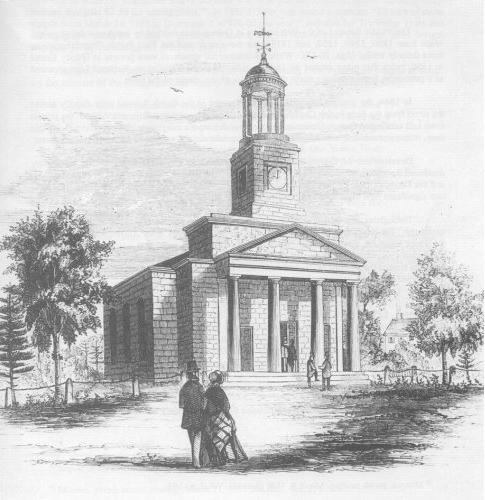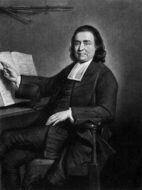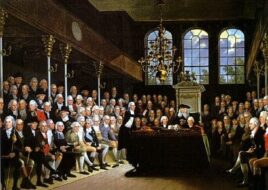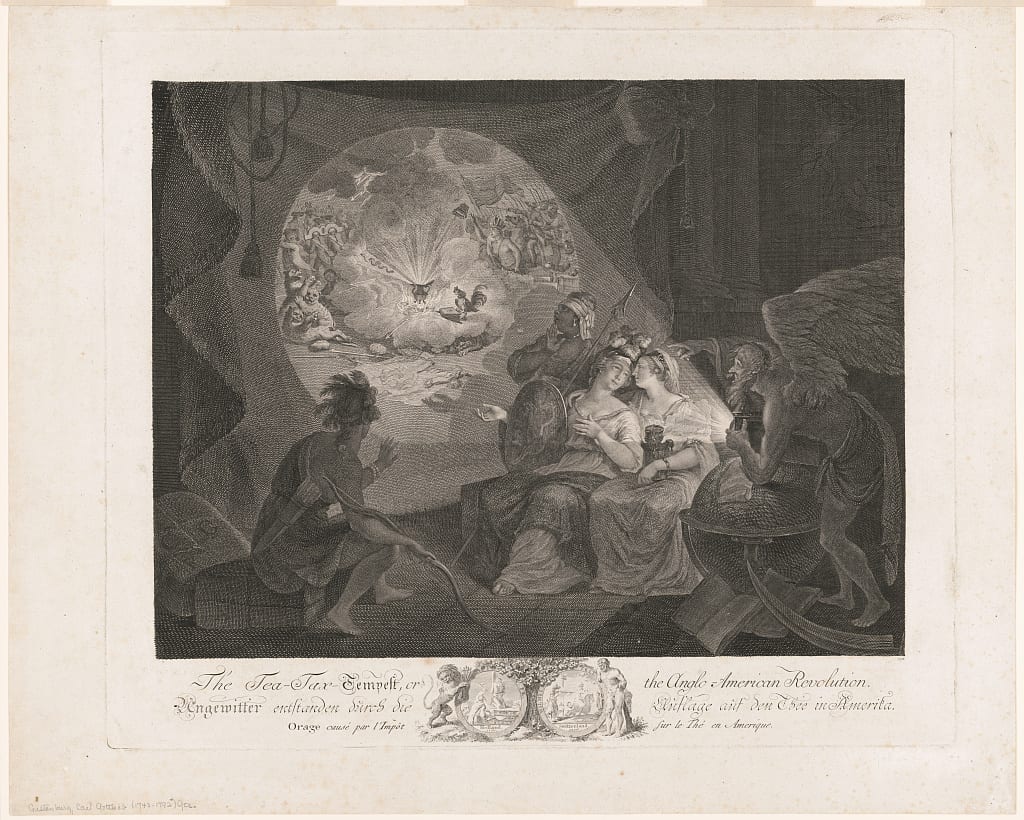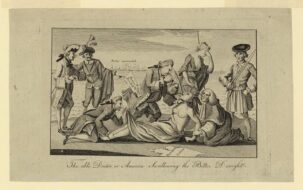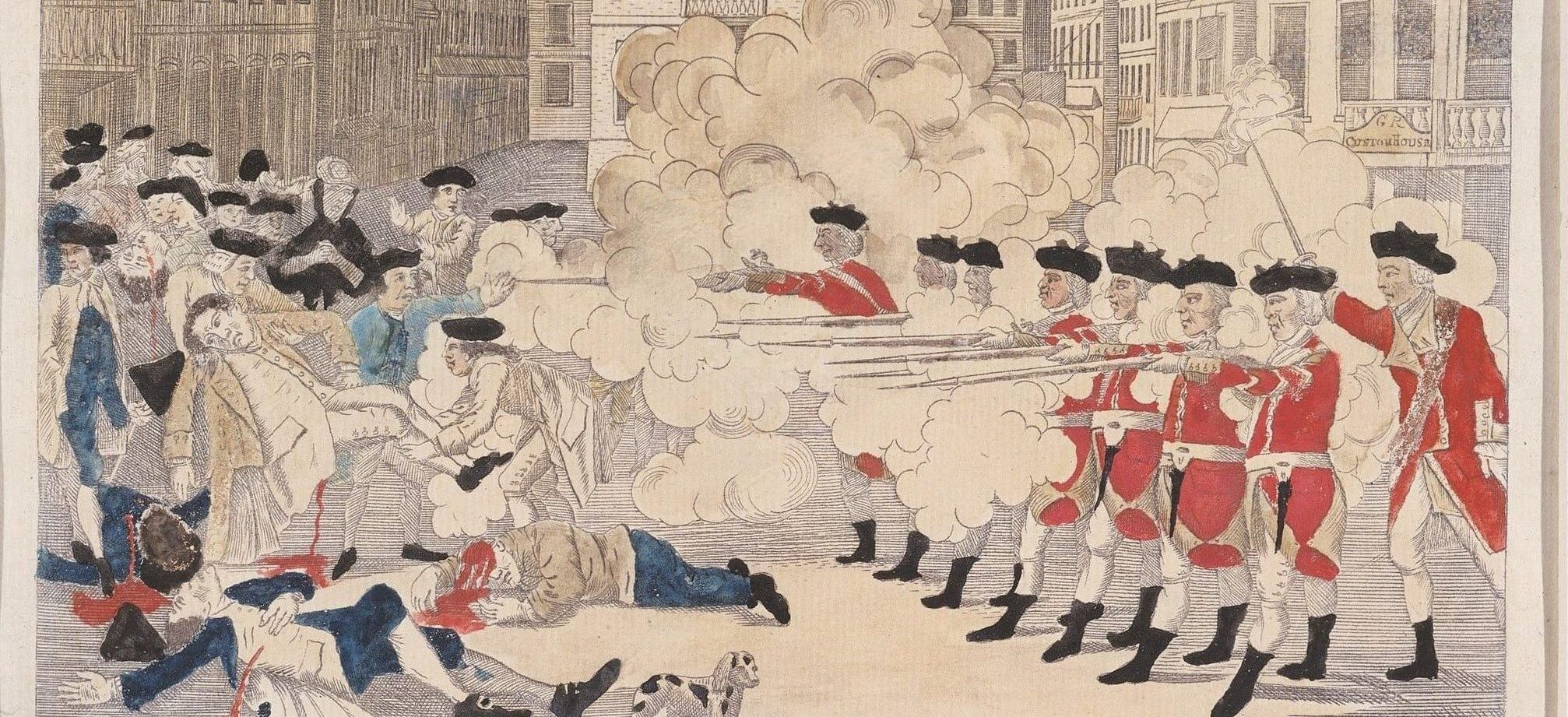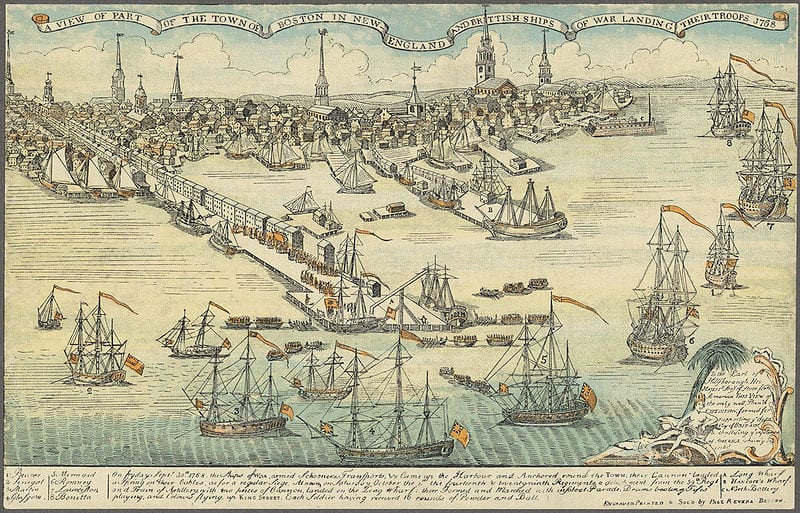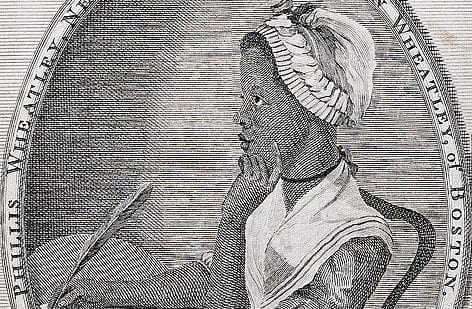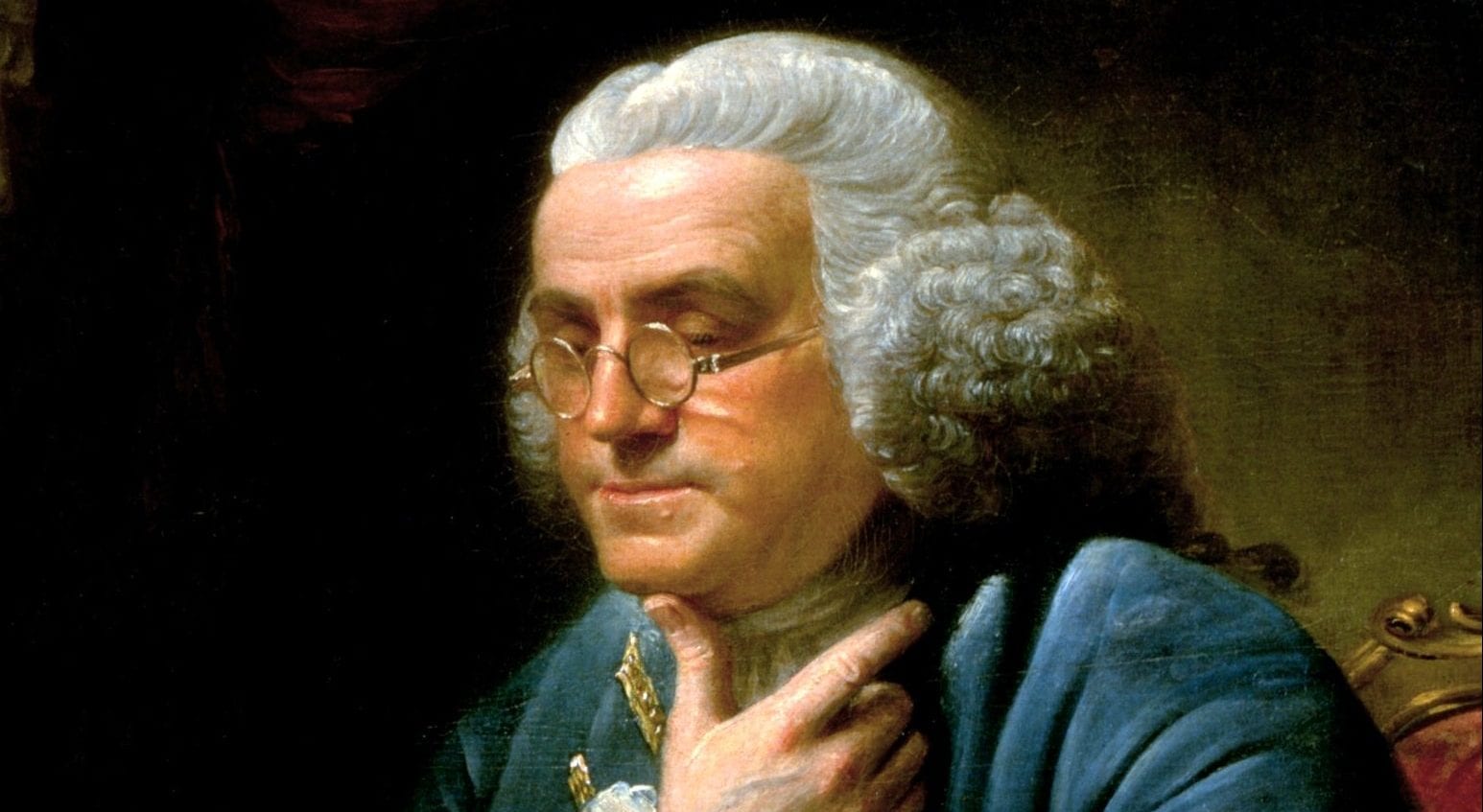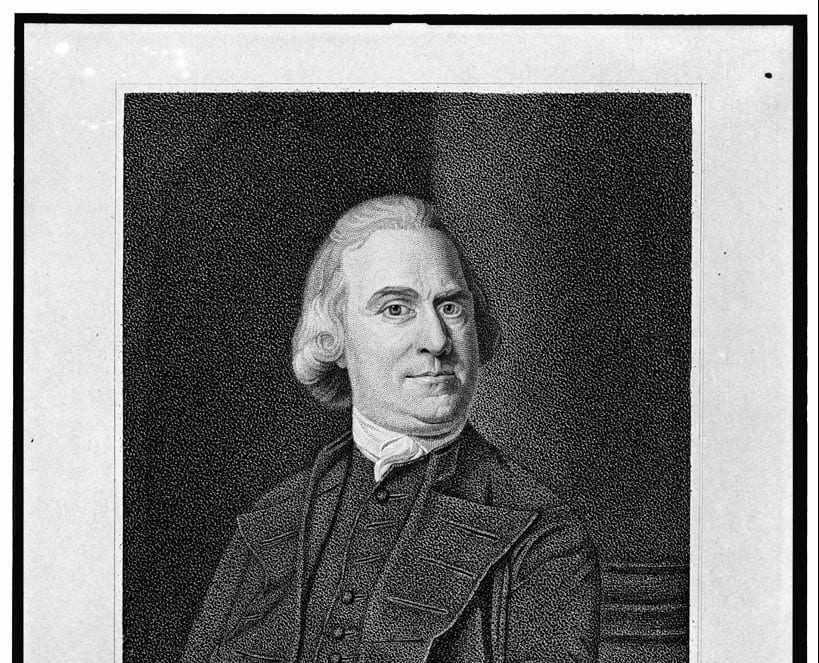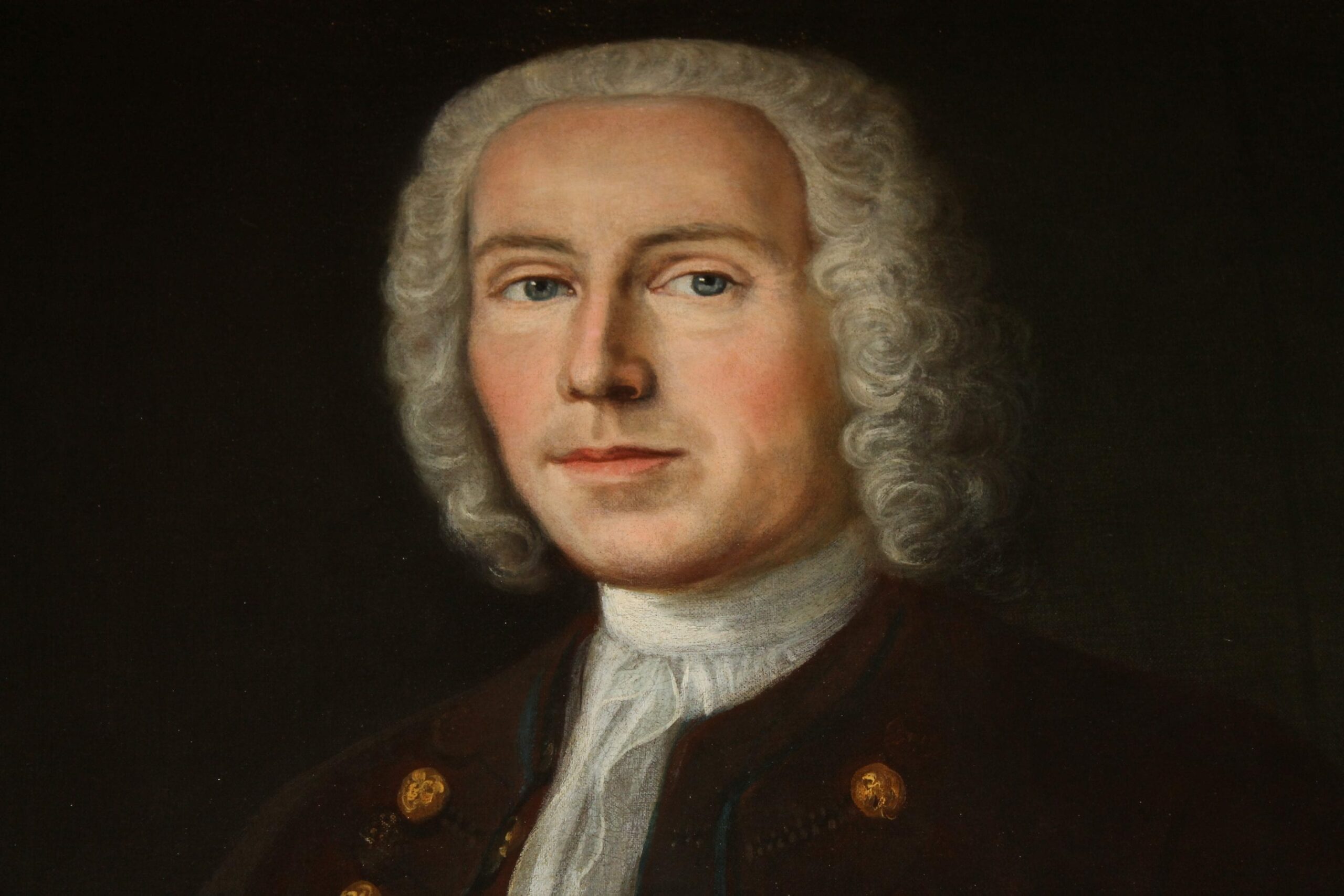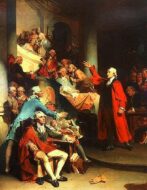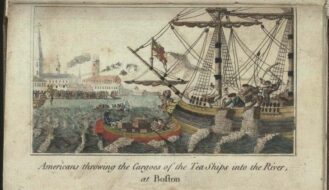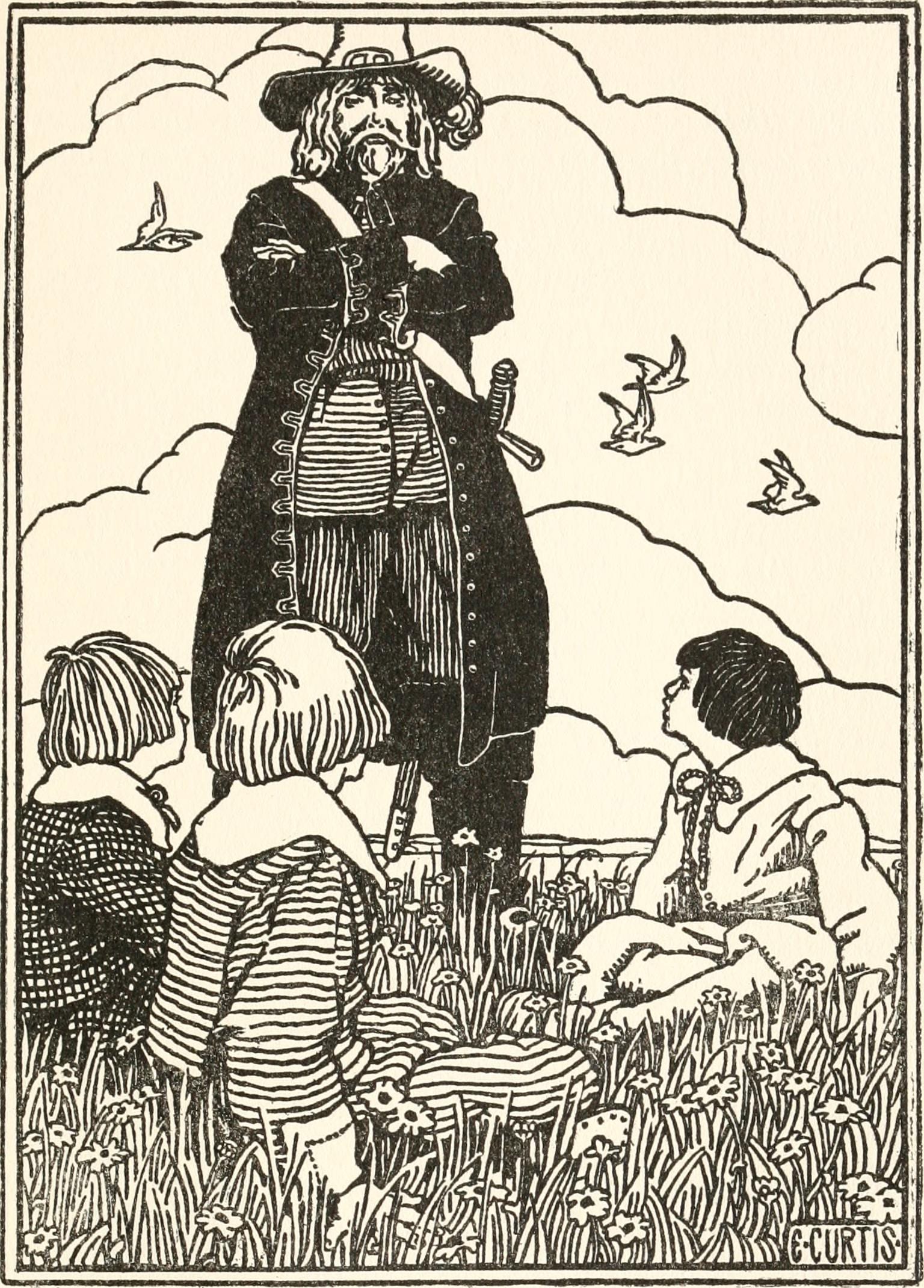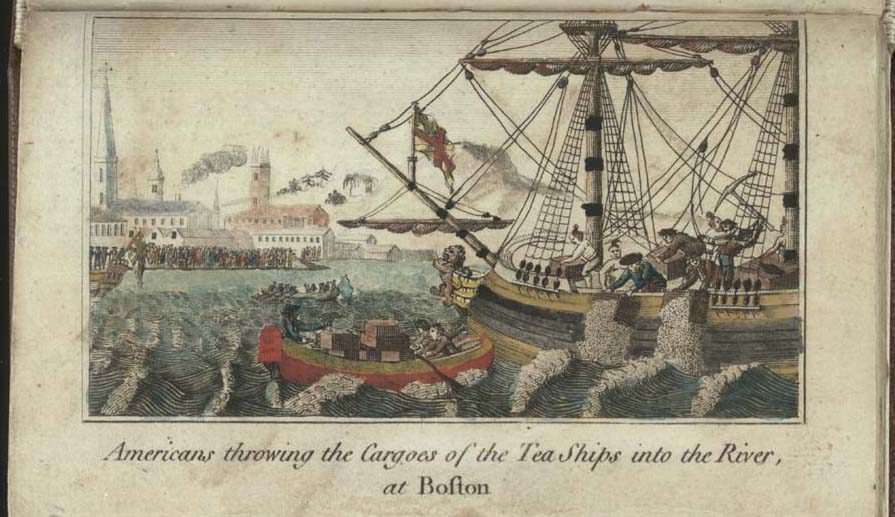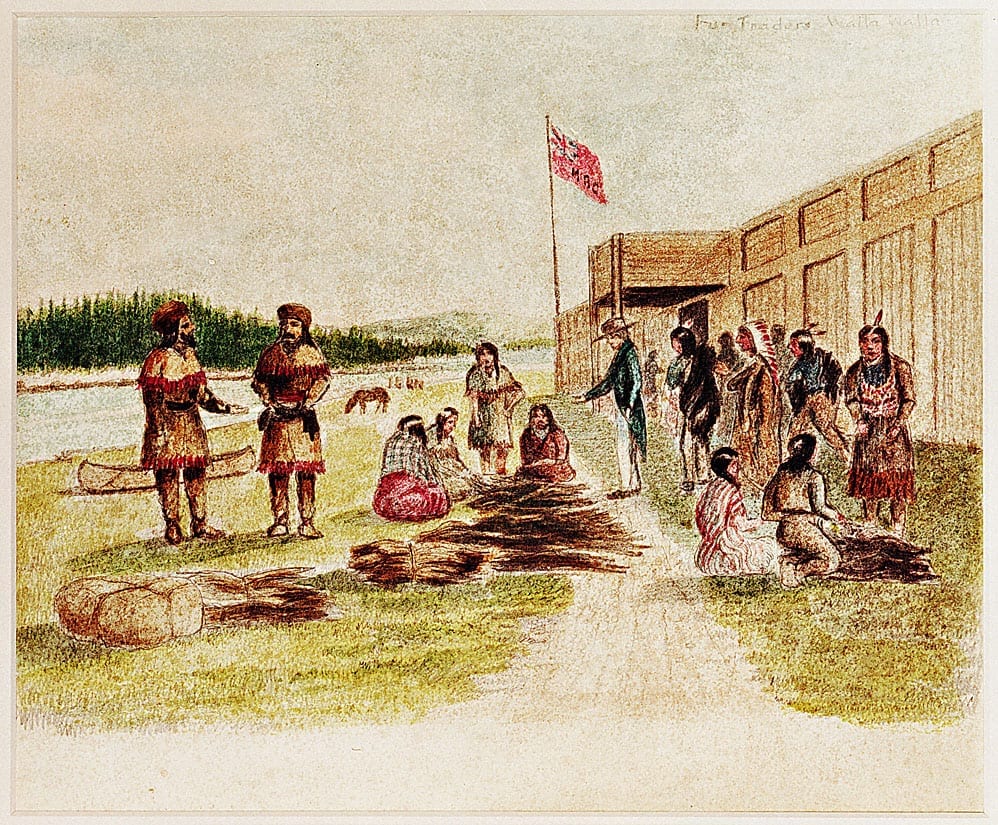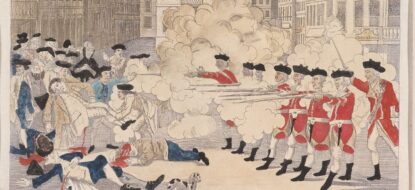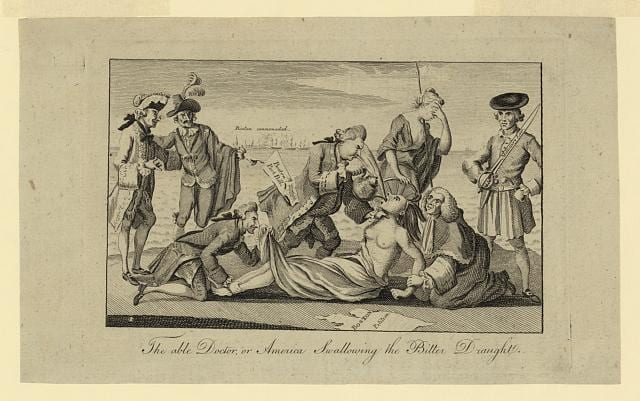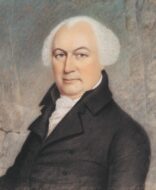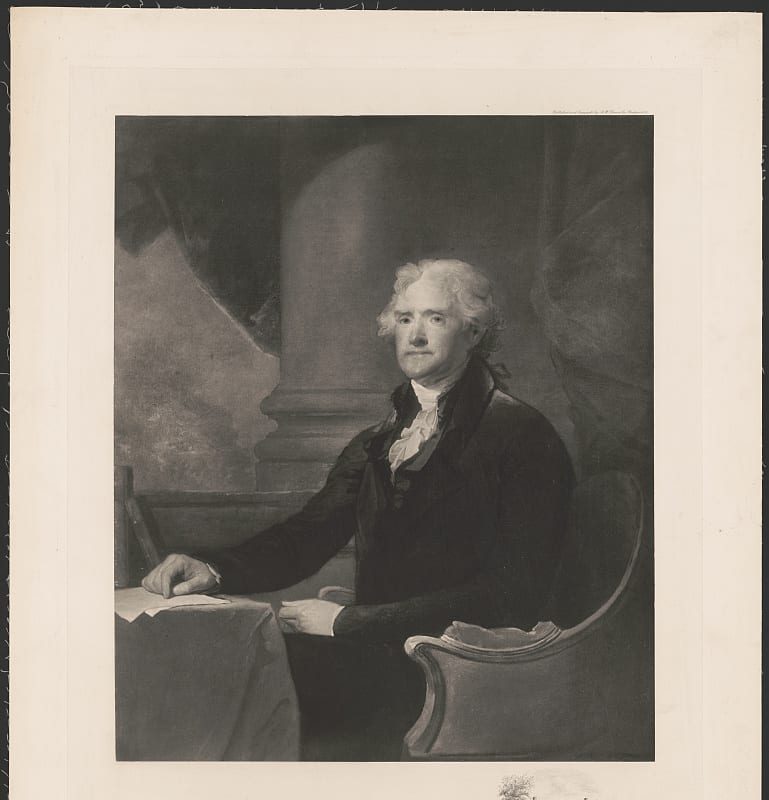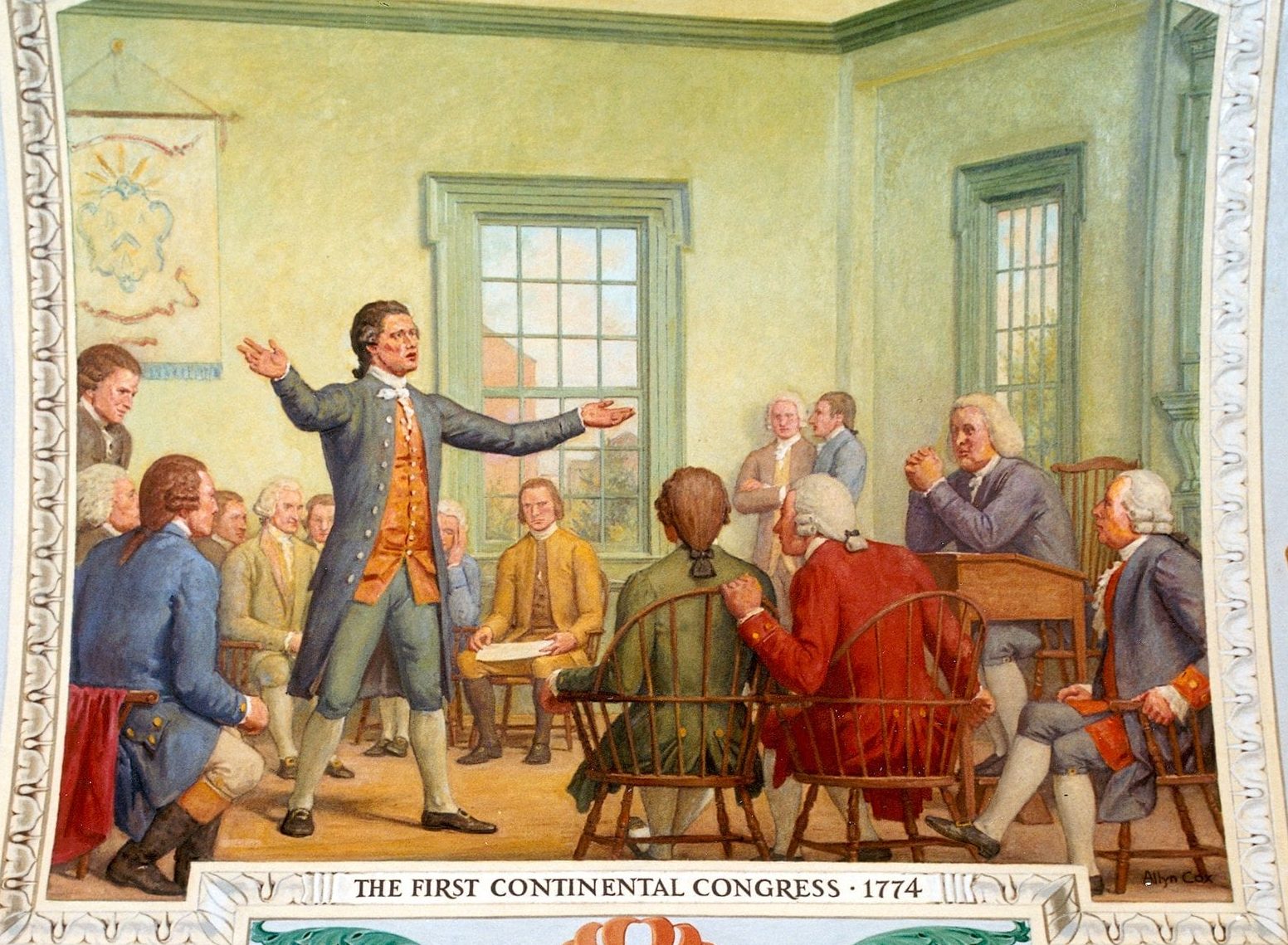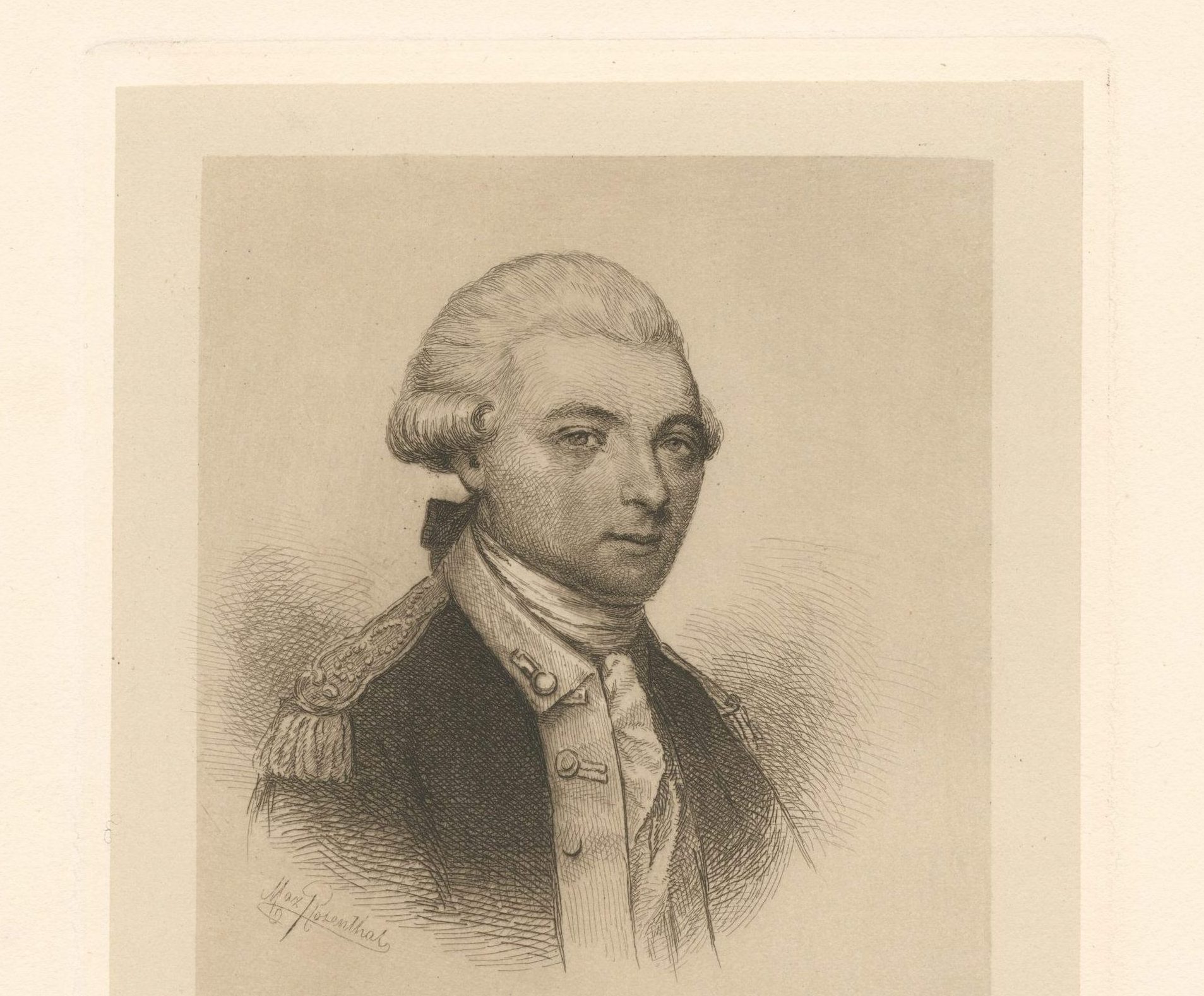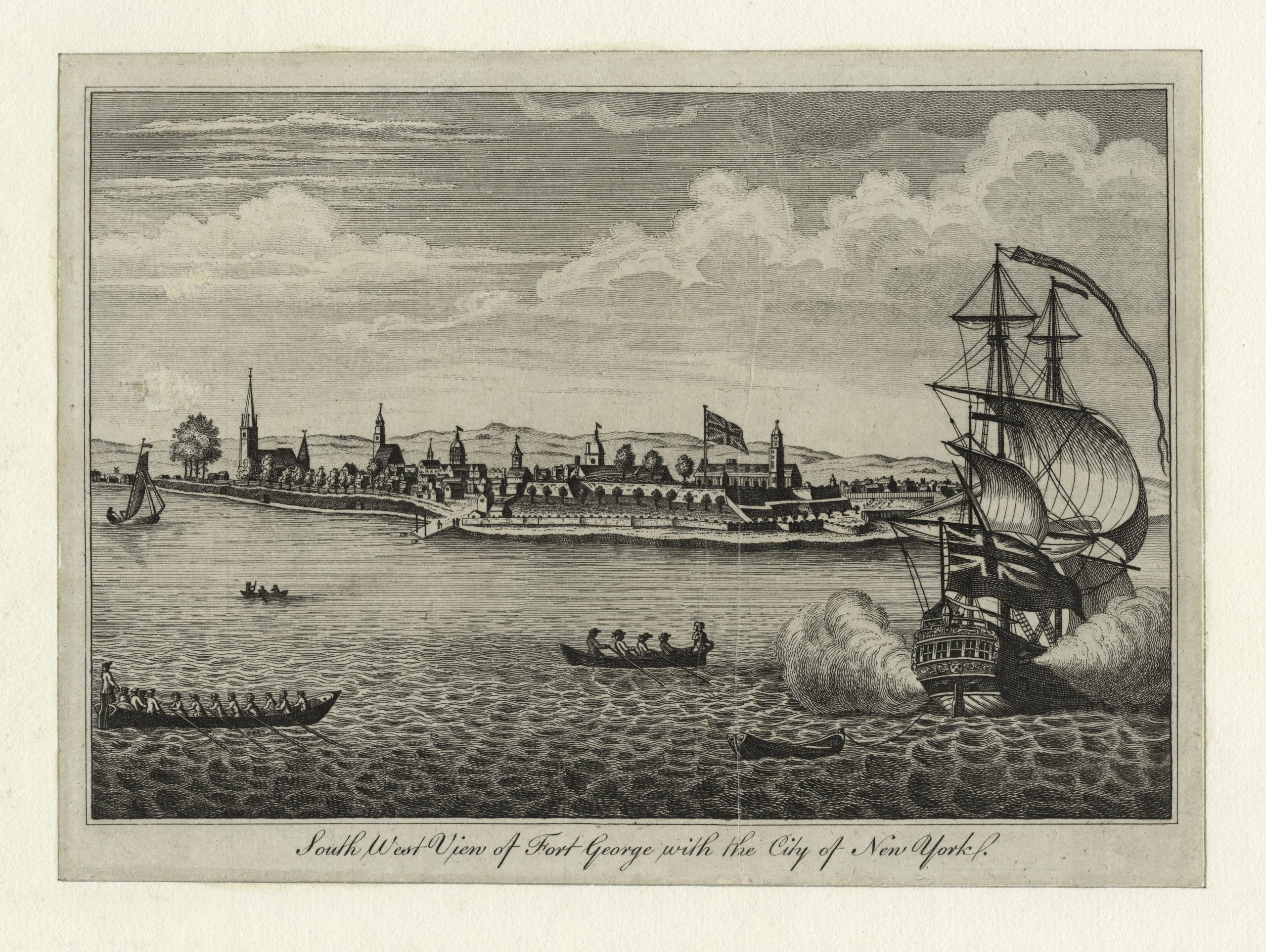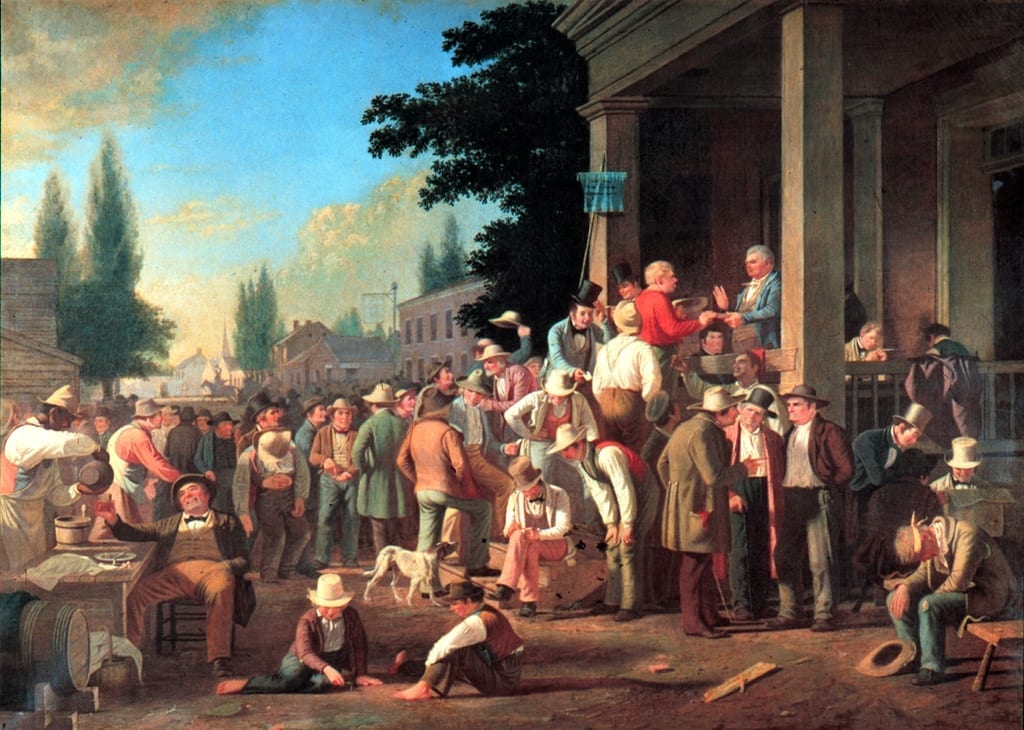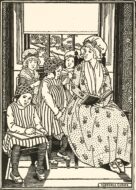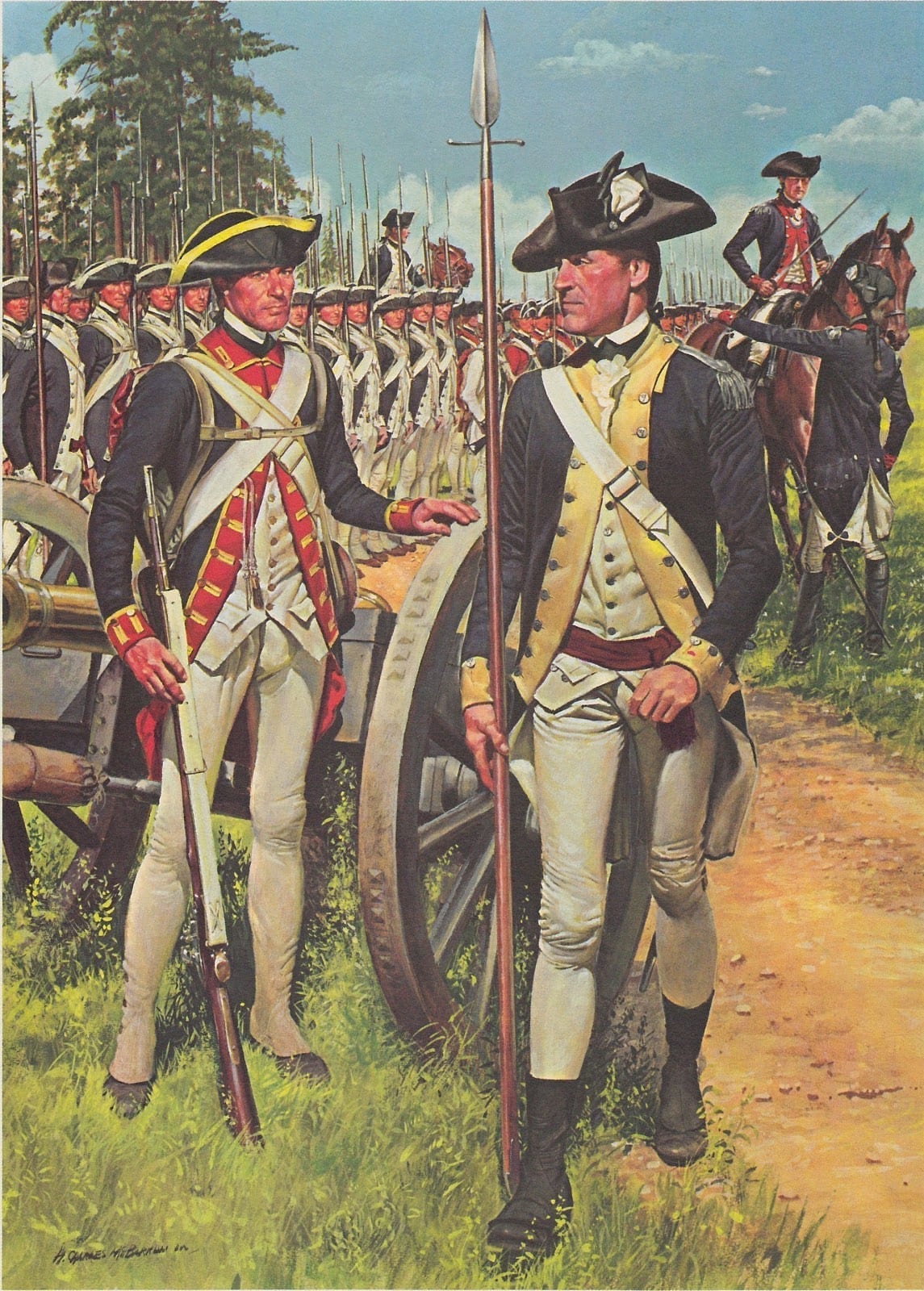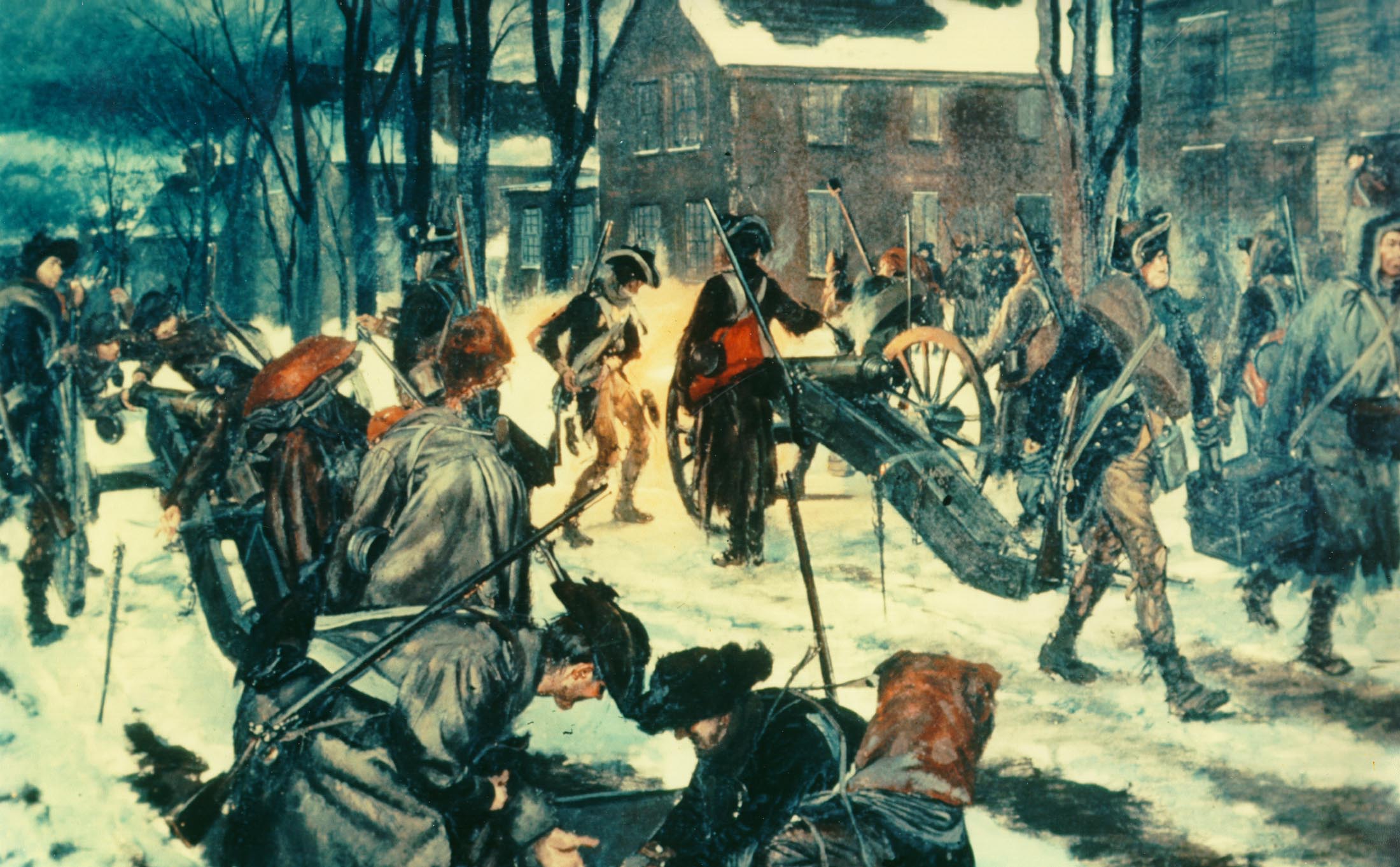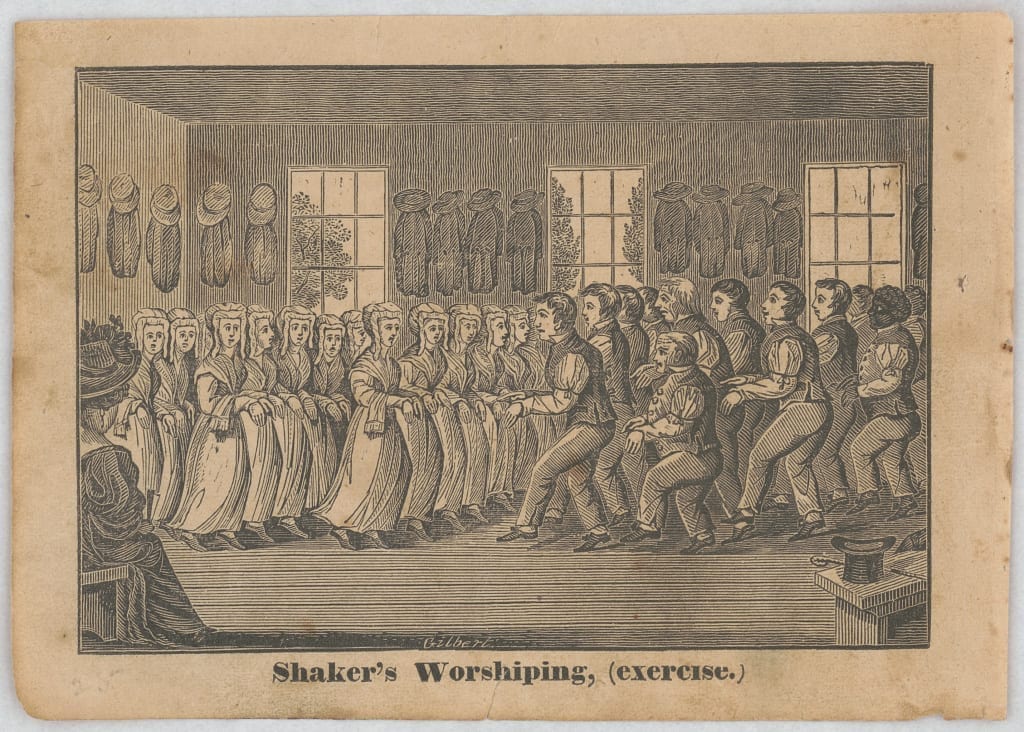
No study questions
No related resources
The 4th day of the 4th moneth called June 1639, all the free planters assembled together in a ge[neral] meetinge to consult about settling civill Government according to God, and about the nomination of persons thatt might be founde by consent of all fittest in all respects for the foundation worke of a churche w[hich] was intend to be gathered in Quinipieck. After solemne invocation of the name of God in prayer [for] the presence and help of his speritt, and grace in those weighty businesses, they were reminded of t[he] busines whereabout they mett [viz] for the establishment of such civill order as might be mose p[leas]ing unto God, and for the chuseing the fittest men for the foundation worke of a church to be gather[ed].
For the better inableing them to discerne the minde of God and to agree accordingly concerning the establishment of civill order, Mr. John Davenport propounded divers quaeres to them publiquely praying them to consider seriously in the presence and feare of God the weight of the business they met about, and not to be rash or sleight in giveing their votes to things they understoode nott, butt to digest fully and thoroughly whatt should be propounded to them, and without respect to men as they should be satisfied and perswaded in their owne mindes to give their answer in such sort as they would be willing they should stand upon recorde for posterity.
QUAER.
- Whether the Scripturs doe holde forth a perfect rule for the direction and government of all men in all duet[ies] which they are to performe to God and men as well in the government of famyles and commonwealths as in matter sof the chur.
This was assented unto by all, no man dissenting as was expressed by holding up of hands. Afterward itt was read over to them thatt they might see in whatt words their vote was expressed: They againe expressed their consent thereto by holdeing up their hands, no man dissenting.
QUAER.
- Whereas there was a covenant solemnly made by the whole assembly of free-planters of this plantation the first dayof extraordenary humiliation which wee had after wee came together, thatt as in matters thatt concerne civill order, as choyce of magistrates and officers, makeing and repealing of lawes, devideing allottments of inheritance and all things of like nature we would all of us be ordered by those rules which the scripture holds forth to us. This covenant was called a plantation covenant to distinguish itt from [a]chur. covenant which could nott att thatt time be made, a chur. Nott being then gathered, butt was deferred till a chur. might be gathered according to God: Itt was demaunded, whether all the free planters doe holde themselves bound by thatt covenant in all businesses of thatt nature which are expressed in the covenant to submitt themselves to be ordered by the rules held forth in the scripture.
This also was assented unto by all, and no man gainsaid itt, and they did testifie the same by holdei[ing] up their hands both when itt was first propounded, and confirmed the same by holdeing up their hands when itt was read unto them in publique.
QUAER.
- Those who have desired to be received as free planters, and are settled in the plantation with a purp[ose,] resolution and desire thatt they may be admitted into a chur. fellowship according to Christ as soone [as] God shall fitt them thereunto: were desired to express it by holdeing up of hands: Accordingly a[ll] did express this to be their desire and purpose by holdeing up their hands twice, both at the [pro]posall of itt, and after when these written words were read unto them.
QUAER.
- All the free planters were called upon to expresse whether they held themselves bound to esta[lish] such civill order as might best conduce to the secureing of the purity and peace of the ordina[nces[ to themselves and their posterity according to God. In answer hereunto they expressed by hold[ing] up their hands twice as before, thatt they held themselves bound to establish such [civil order]] as might best conduce to the ends aforesaid.
Then Mr. Davenport declared unto them by the scripture whatt kinde of persons might best be trusted with matters of government, and by sundry arguments from scripture proved that such men as were discrib[ed] in Exoc. 18.2 Deut. 1.13, with Deut 17.15, and 1. Cor. 6: 1 to 7, ought to be intrusted by them, seing [they] were free to cast themselves into thatt mould and forme of common wealth which appeareth best for them in referrence to the secureing of the pure and peacable injoyment of all Christ his ordinances [in] the church according to God, whereunto they have bound themselves as hath been acknowleded. Having thus said he satt downe, praying the company freely to consider whether they would have [it] voted att this time or nott: After some space of silence Mr. Theophilus Eaton answered itt mi[ght] be voted, and some other allso spake to the same purpose, none att all opposeing itt. Then itt was propounded to vote.
QUAER.
- Whether Free Burgesses shalbe chosen out of chur. members they thatt are in the foundat[ion] worke of the church being actually free burgesses, and to chuse to themselves out of the li[ke] estate of church fellowship and the power of chuseing magistrates and officers from among themselves and the power off makeing and repealing lawes according to the worde, and the devideing of inheritances and decideing of differences thatt may arise, and all the businesses of like nature are to be transacted by those free burgesses.
This was putt to vote and agreed unto by the lifting up of hands twice as in the former itt was done. Then one man stood up after the vote was past, and expressing his dissenting from the rest in part yett grantinge
- That magistrates should be men fearing God.
- Thatt the church is the company whence ordenaryly such men can be expected.
- Thatt they that chuse them ought to be men fearing God: onely att this he stuck, That free planters ought nott to given this power out of their hands
: Another stood up and answered that in this case nothing was done but with their consent. The former answered thatt all the free planters ought to resume this power into their owne hands againe if things were not orderly carryed. Mr. Theophilus Eaton answered thatt in all places they chuse committyes, in like manner the companyes of London chuse the liveryes by whome the publique magistrates are chosen. In this the rest are not wronged because they expect in time to be of the livery themselves, and to have the same power. Some other intreated the former to give his arguments and reasons whereupon he dissented. He refused to doe itt and said they might nott rationally demaund itt, seeing he lett the vote passe on freely and did nott speake till after itt was past, because he would nott hinder whatt they agreed upon. Then Mr. Davenport, after a short relation of some former passages betweene them two about this quest. prayed the company thatt nothing might be concluded by them in this weighty quest. butt whatt themselves were perswaded to be agreeing with the minde of God and they had heard whatt had beene said since the voteing, intreated them againe to consider of itt, and put itt againe to vote as before.&#151Again all of them by holding up their hands did shew their consent as before, And some of them professed that whereas they did waver before they came to the assembly they were now fully convinced thatt itt is the minde of God. One of them said that in the morning, before he came, reading Deut. 1.15. he was convinced att home, another said thatt he came doubting to the assembly butt he blessed God by what had beene said he was now fully satisfied thatt the choyce of burgesses out of chur. members, and to intrust those with the power bfore spoken off is according to the minde of God revealed in the scriptures. All haveing spoken their apprehensions, itt was agreed upon, and Mr. Robert Newman was desired to write itt as an order whereunto every one that hereafter should be admitted here as planters should submitt and testefie the same by subscribeing their names to the order, namely that church members onely shall be free burgesses, and that they onely shall chuse magistrates officers among themselves to have the power of transacting all the publique civill affayres of this Plantation, of makeing and repealing lawes, devideing of inheritances, decideing of differences thatt may arise and doeing all things or businesses of like nature.
This being thus settled as a foundamentall agreement concerning civill government: Mr. Davenport proceeded to propound some things to consideration aboute the gathering of a chur. And to prevent the blemishing of the first beginings of the chur. worke, Mr. Davenport advised thatt the names of such as were to be admitted might be publiquely propounded, to the end thatt they who were most approved might be chosen, for the towne being cast into severall private meetings wherein they thatt dwelt nearest together gave their accounts one to another of Gods gracious worke upon them, and prayed together and conferred to their mutuall ediffication, sundry of them had knowledg one of another, and in every meeting someone was more approved of all then any other, For this reason, and to prevent scandalls, the whole company was intreated to consider whom they found fittest to nominate for this worke.
QUAER.
- Whether are you all willing and doe agree in this thatt twelve men be chosen that their fitnesse for the foundation worke may be tried, however there may be more named yett itt may be in thier power who are chosen to reduce them to twelve, and itt be in the power of those twelve to chuse out of themselves seaven that it shall be most approved of the major part to begin the church.
This was agreed upon by consent of all as was expressed by holdeing up of hands, and thatt so many as should be thought fitt for the foundation worke of the church shall be propounded by the plantation, and written downe and passe without an exception unlesse they had given publique scandall or offence, yett so as in case of publique scandall or offence, every one should have liberty to propound their exception att thattt time publiquely against any man that should be nominated when all their names should be writt downe butt if the offence were private, thatt mens names might be tendered, so many as were offended were intreated to deale with the offender priately, and if he gave nott satisfaction, to bring the matter to the twelve thatt they might consider of itt impartially and in the feare of God. The names of the presons nominated and agreed upon were Mr. Theoph. Eaton, Mr. John Davenport, Mr. Robert Newman, Mr. Math. Gilbert, Mr. Richard Malbon, Mr. nath: Turner, Eze: Chevers, Thomas Fugill, John Ponderson, William Andrewes, and Jer. Dixon. Noe exception was brought against any of those in publique, except one about takeing an excessive rate for meale which he sould to one of Pequanack in his need, which he confessed with griefe and declared thatt haveing been smitten in heart and troubled in his conscience, he restored such a part of the price back againe with confession of his sin to the party as he had thought himselfe bound to doe. And itt being feared thatt the report of the sin was heard farther th[an] the report of his satisfaction, a course was concluded on to make the satisfaction known to as many as heard of the sinn. Itt was also agreed upon att the said meeting thatt if the persons above named did finde themselves straitened in the number of fitt men for the seaven, that itt should be free for them to take into tryal of fitness such other as they should think meete, provided thatt it should be signified to the towne upon the Lords day who they take in, that every man may be satisfied of them according to the course formerly taken.

Conversation-based seminars for collegial PD, one-day and multi-day seminars, graduate credit seminars (MA degree), online and in-person.
